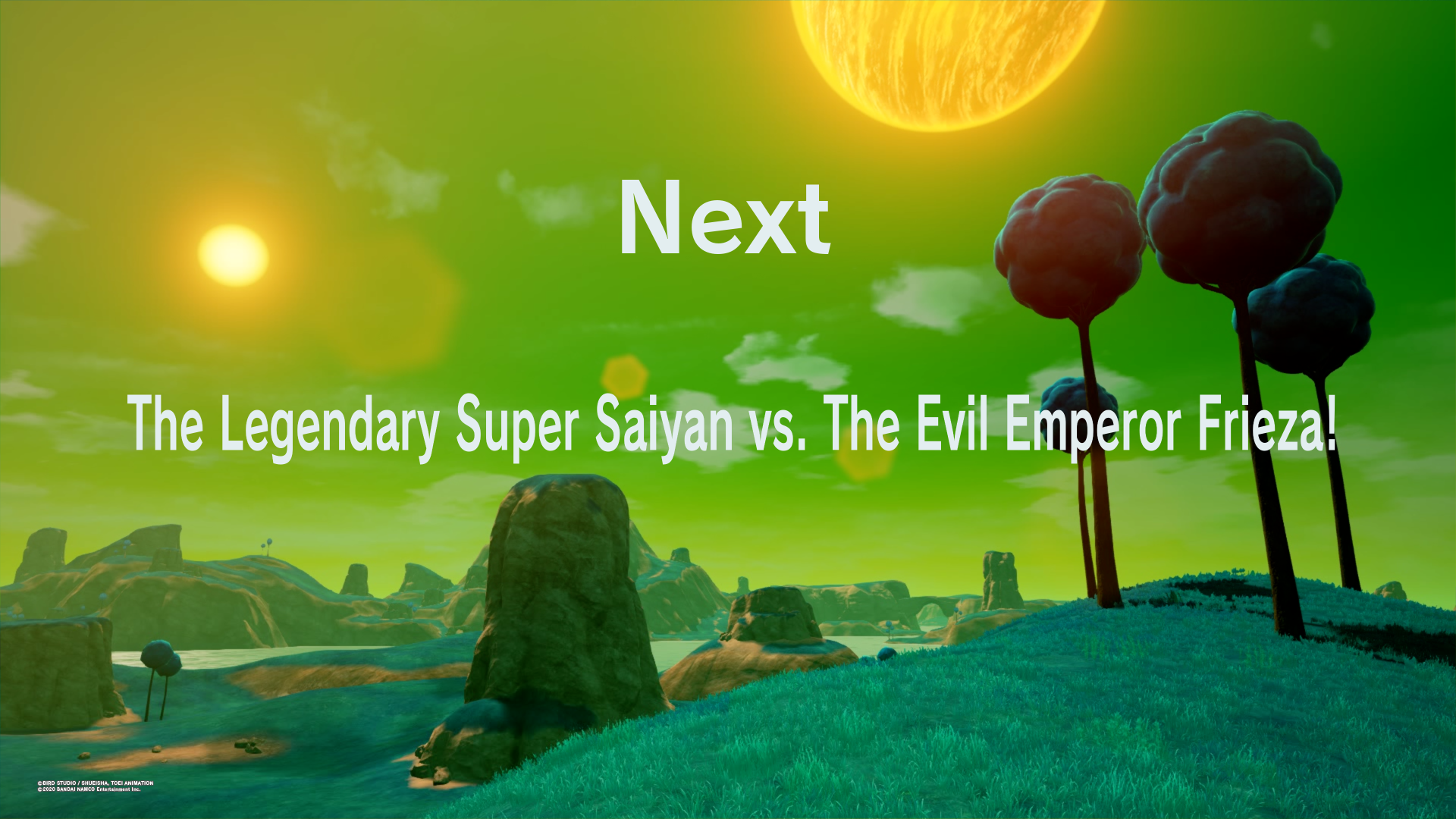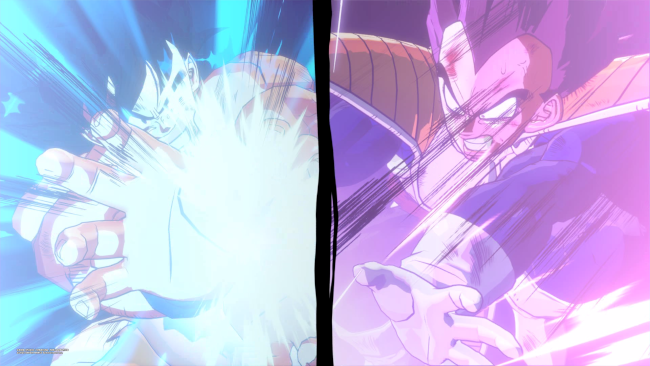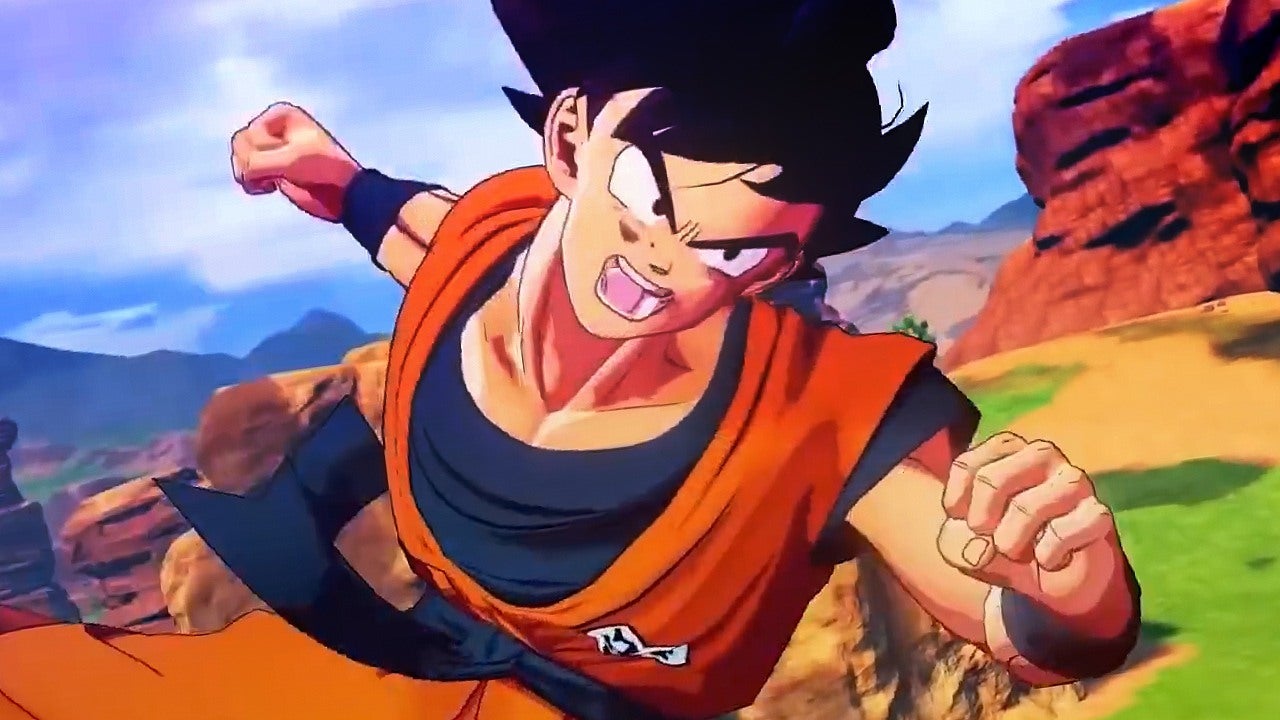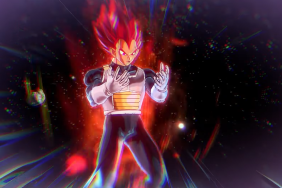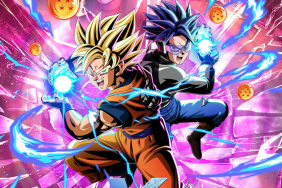Dragon Ball games aren’t rare, and in fact, some are pretty good. Newly-released Dragon Ball Z: Kakarot is one of the most ambitious titles to adopt the franchise to date, though, as it covers multiple major story arcs from the anime, features hundreds of characters, and spans dozens of hours of playtime. But is this a case of trying to cast too wide of a net?
Unreal Shading
Unreal Engine 4 was chosen as the development platform for Kakarot. This allows for reliable performance throughout the adventure. The frame rate is capped at 30 fps, despite it being a fight-centric title. There are enhancements for the PS4 Pro, though what those are isn’t really clear. A more steady frame rate and higher resolution are a given, but HDR support is unfortunately nowhere to be found. The art style is the only sensible type for an anime-based series, cel-shaded. Seeing Goku, Chi-Chi, Gohan, Vegeta, Piccolo, and many other characters rendered this way is a treat. The environment is lacking in detail, but character models are superb. Some cutscenes are done so well, it almost looks just like the anime at certain points. Other times, mostly during side quests, things look much less impressive. Mostly, animations look a bit off, just enough to remind you that you are playing a video game and not watching a show.
All major cutscenes are fully voiced, and with actors who have actually played the various characters from at least one Dragon Ball television or movie entry. The voice work really makes the game feel authentic. When in a minor cutscene, simple voice excerpts are used in place of the text of the conversation, though some of these cutscenes have the most entertaining lines of the whole game. Occasionally, some voiced lines are cut off awkwardly, but generally, the audio work is polished.
Each map that represents an area of Earth is large by most standards. But since the characters of Dragon Ball Z can fly—and fly really fast—it makes these big levels feel rather small. When you can hold R1 to quickly leap up hundreds of meters, it makes the scale of everything shrink in your mind. Flying feels good, though, and comes with its own hazards such as enemies that chase after you. It wouldn’t be Dragon Ball Z without flying!
Free to Roam
Dragon Ball Z: Kakarot is a third-person action RPG, which takes place in a semi-open world version of Earth. The world is divided up into multiple areas that are unlocked as the story progresses. In between major story episodes, the player is free to collect Z orbs of different colors, which can be used to upgrade stats. As new characters are encountered, their community emblems can be collected. These emblems can be placed on one of seven community boards. Each board requires the player to have met the community leader before being able to be used. Goku leads the Z-Fighter board, for instance. Each emblem has individual stats for each community board type. For example, the Gohan emblem will start with more levels in the Z-Fighter board, while someone like Chi-Chi will have extra levels in the Cooking category. Placing emblems next to others in a certain combination can result in bonus levels being awarded.
Fans of the Dragon Ball series will easily understand why certain characters pair together well, but the game does a good job of showing which characters go together on the board to help those who aren’t as familiar with the series. Once a board reaches a high enough level, bonuses are granted that can help increase the player’s attack, currency earned per battle, food effect duration, and other buffs. Emblems can also have their levels increased to a cap in each category by gifting them with items found throughout the adventure. Once a character emblem has received enough gifts, they will give the player gifts of their own.
Combat in Kakarot is easy to get into but requires some thinking to master. Mashing circle will get most players through small battles, but harder fights require some strategy. Players are tasked with watching their Ki, an energy source, as most actions use it. Battles take place in real-time, and Ki recharges automatically over time, so it isn’t usually too much of a concern. Holding shoulder buttons provides expanded move sets, such as super attacks, transformations, assists, and other options. Blocking opens up counterattack options, something the enemy can and will use against the player as well. A tutorial explains most of the combat mechanics succinctly, and the game even slows down while some of the more complicated moves are available. Most story missions aren’t too tough, and there are optional, more challenging enemies to take on if so desired.
Outside of combat, there are also other activities to partake of in Dragon Ball Z: Kakarot. Fishing Saiyan-style with an attached tail is a fun distraction, plus it earns ingredients that can be given to cooks to whip up stat-boosting meals and even full-course meals. This trend of open-world games including cooking is one I think most of us can get behind, because it’s fun, optional, and adds just a tiny bit more immersion. There are also training options at various points, where players can level up their characters before progressing the main story. Speaking of the story, those who hate non-linear progression are constantly shown exactly where on the map to go to progress the story, and all optional stories, quests, and items are just that, optional.
Glorious Offline
Today’s hyperconnected world features so many games that require an internet connection to even play. Dragon Ball Z: Kakarot has no such requirement. It is a single-player game, by design. There are no online options, beyond DLC in the form of a season pass which promises two more story episodes to come. That being said, the story is entertaining enough to watch, though since it follows the anime fans will know what to expect. This is not a bad thing by any means, though some sort of online sparring capability would have been interesting to see since the combat is so involved. Those looking for an online fix of Saiyan fights need to look elsewhere.
Dragon Ball Z: Kakarot is an easy buy for any level of fan of Dragon Ball Z. Re-living the show’s iconic moments by playing through them as key characters is a treat. Sure, some of these moments don’t come across as impactful due to the game’s format, and a lot of the nuances of the story beats are lost due to the speed with which it is delivered. But the sheer volume of events to play through, spread across a meaty 40-hour campaign, with easily double that for a 100% completion rate, combine to make a game that fans should be pleased with.
Dragon Ball Z: Kakarot review code provided by publisher. Version 1.03 reviewed on a PS4 Pro. For more information on scoring please see our Review Policy.
-
Great art style
-
Lots to collect
-
Fun and accessible combat
-
Environment detail disappoints
-
Some story moments fall flat
Dragon Ball Z Kakarot Review
-
Dragon Ball Z Kakarot Review #1

-
Dragon Ball Z Kakarot Review #2

-
Dragon Ball Z Kakarot Review #3
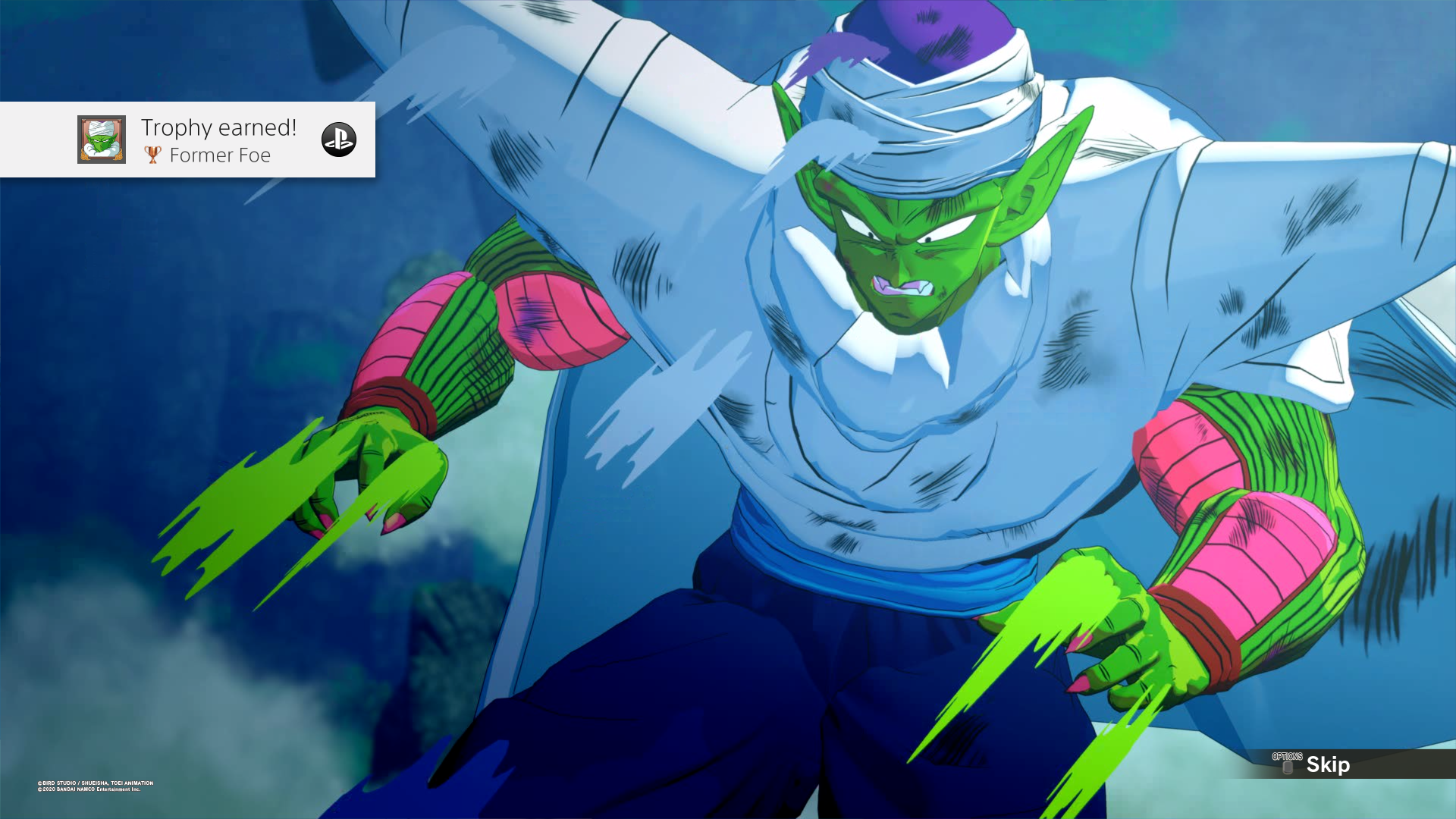
-
Dragon Ball Z Kakarot Review #4
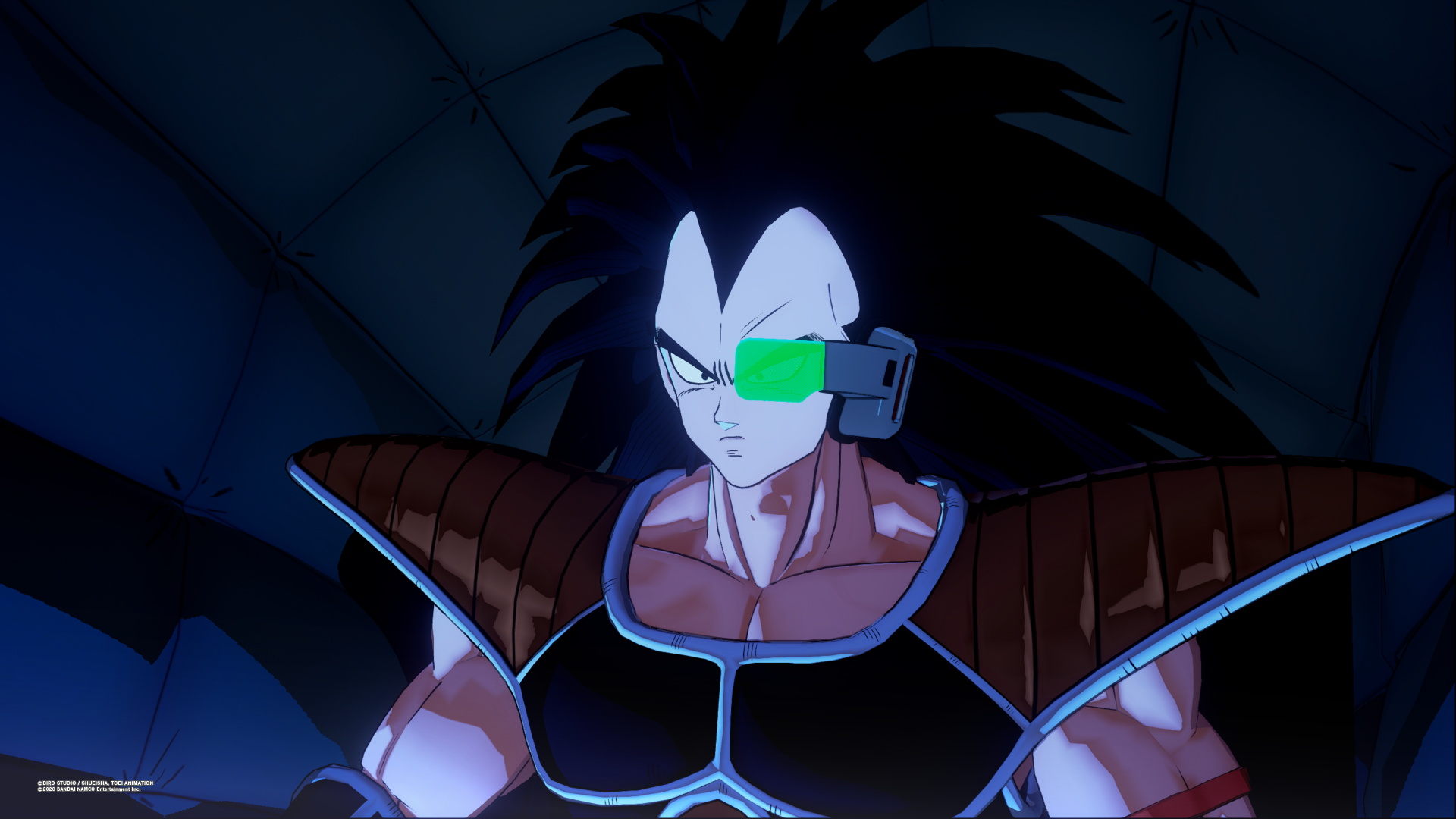
-
Dragon Ball Z Kakarot Review #5

-
Dragon Ball Z Kakarot Review #6

-
Dragon Ball Z Kakarot Review #7
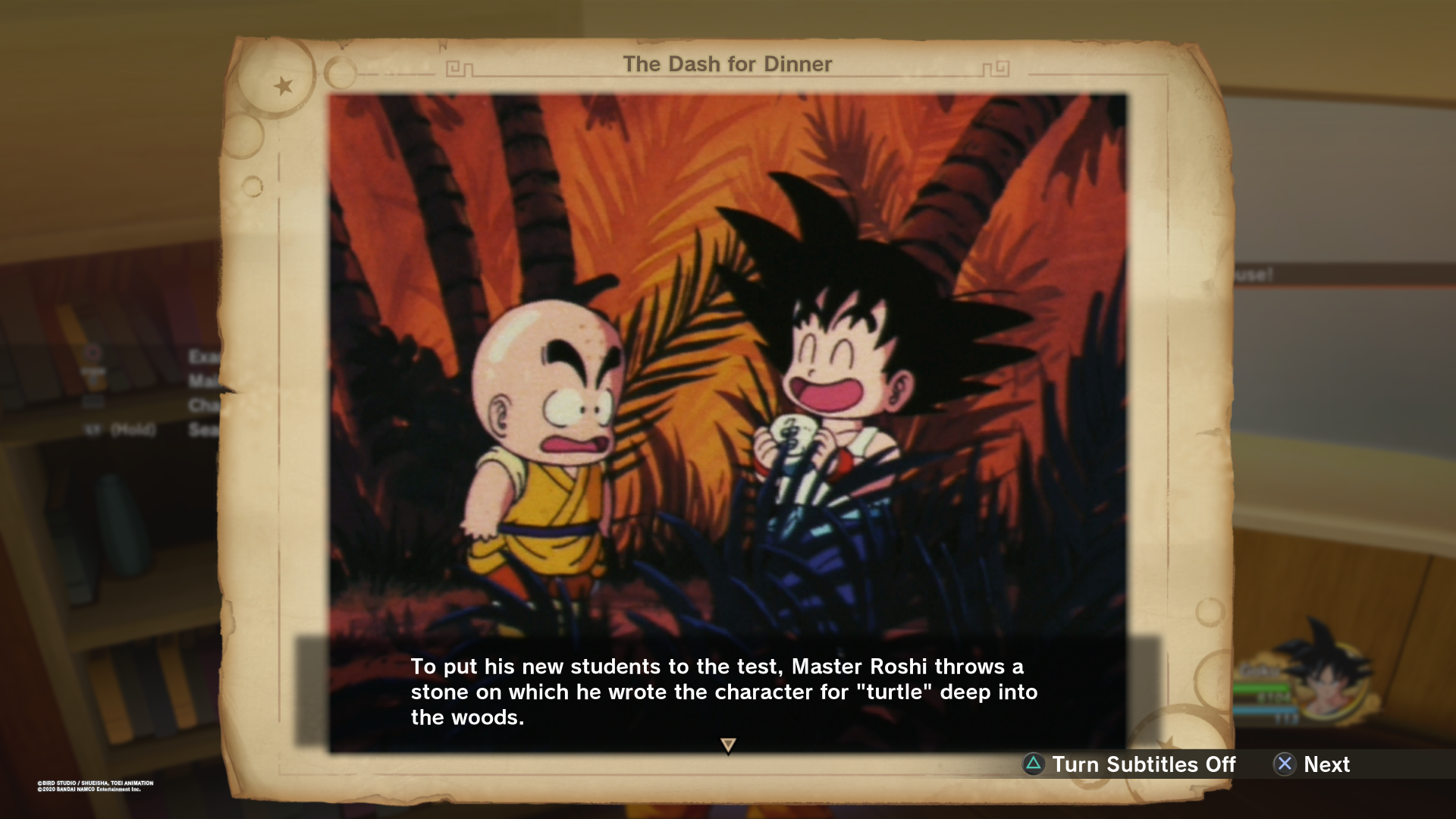
-
Dragon Ball Z Kakarot Review #8
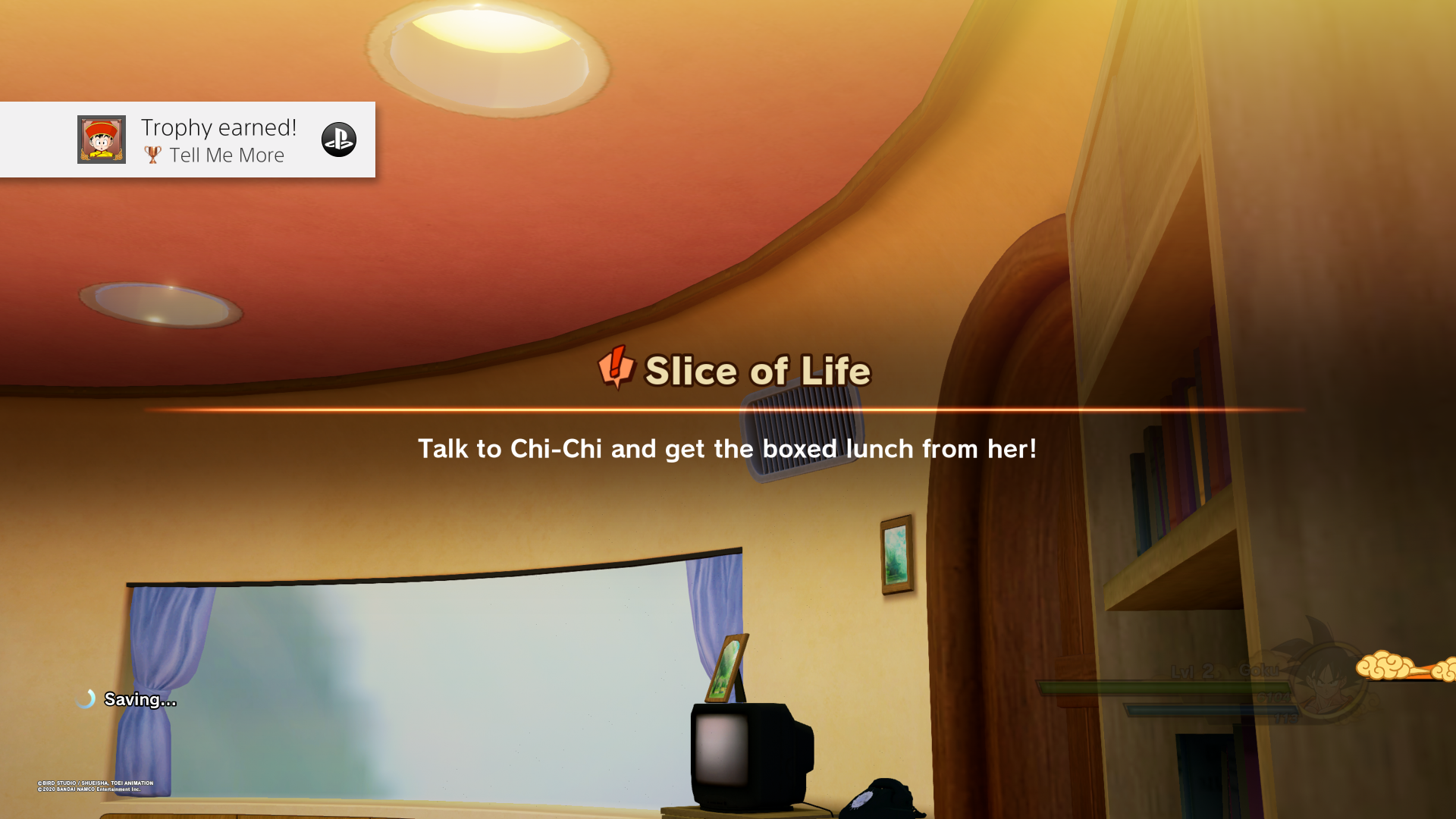
-
Dragon Ball Z Kakarot Review #9
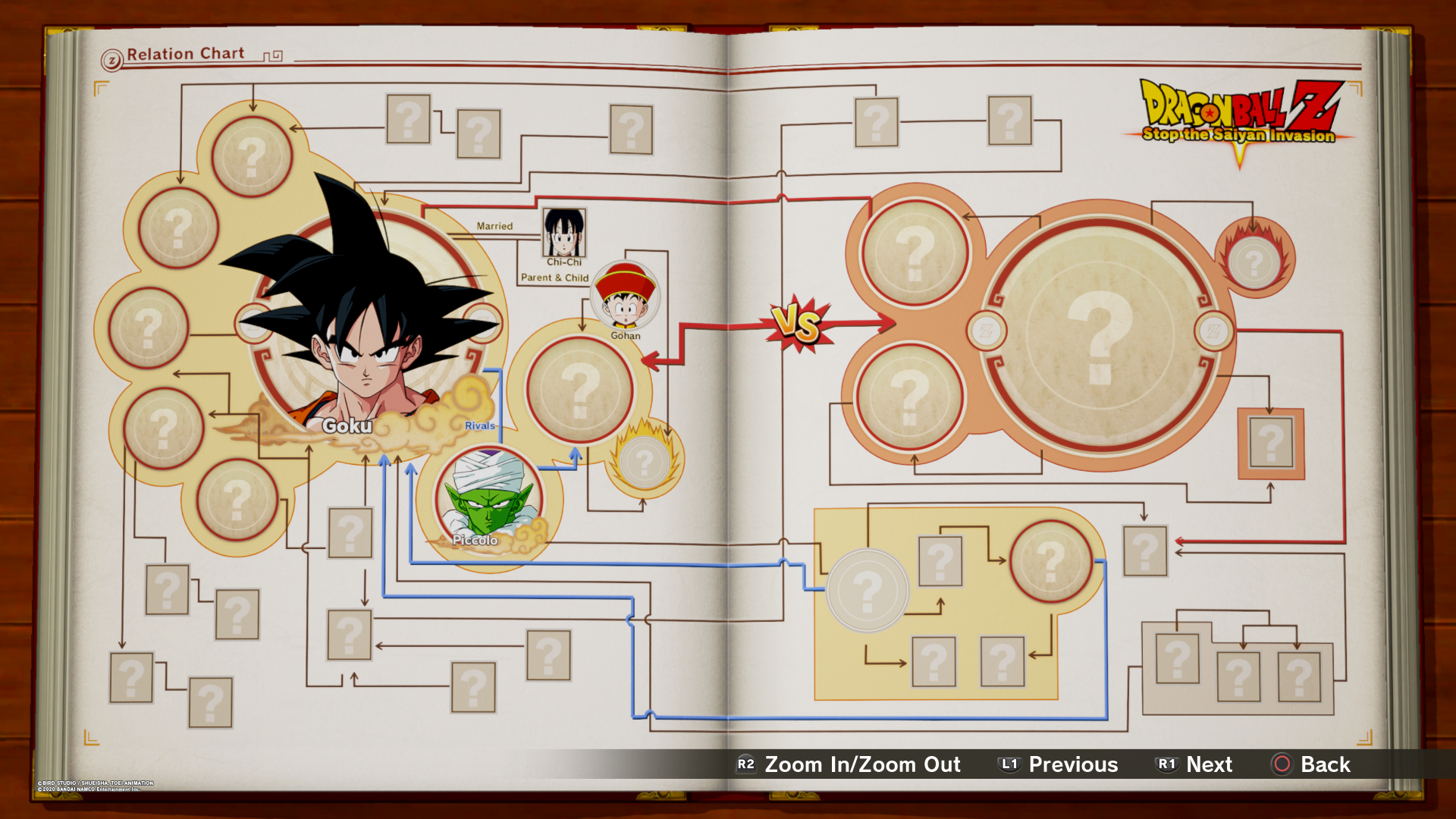
-
Dragon Ball Z Kakarot Review #10
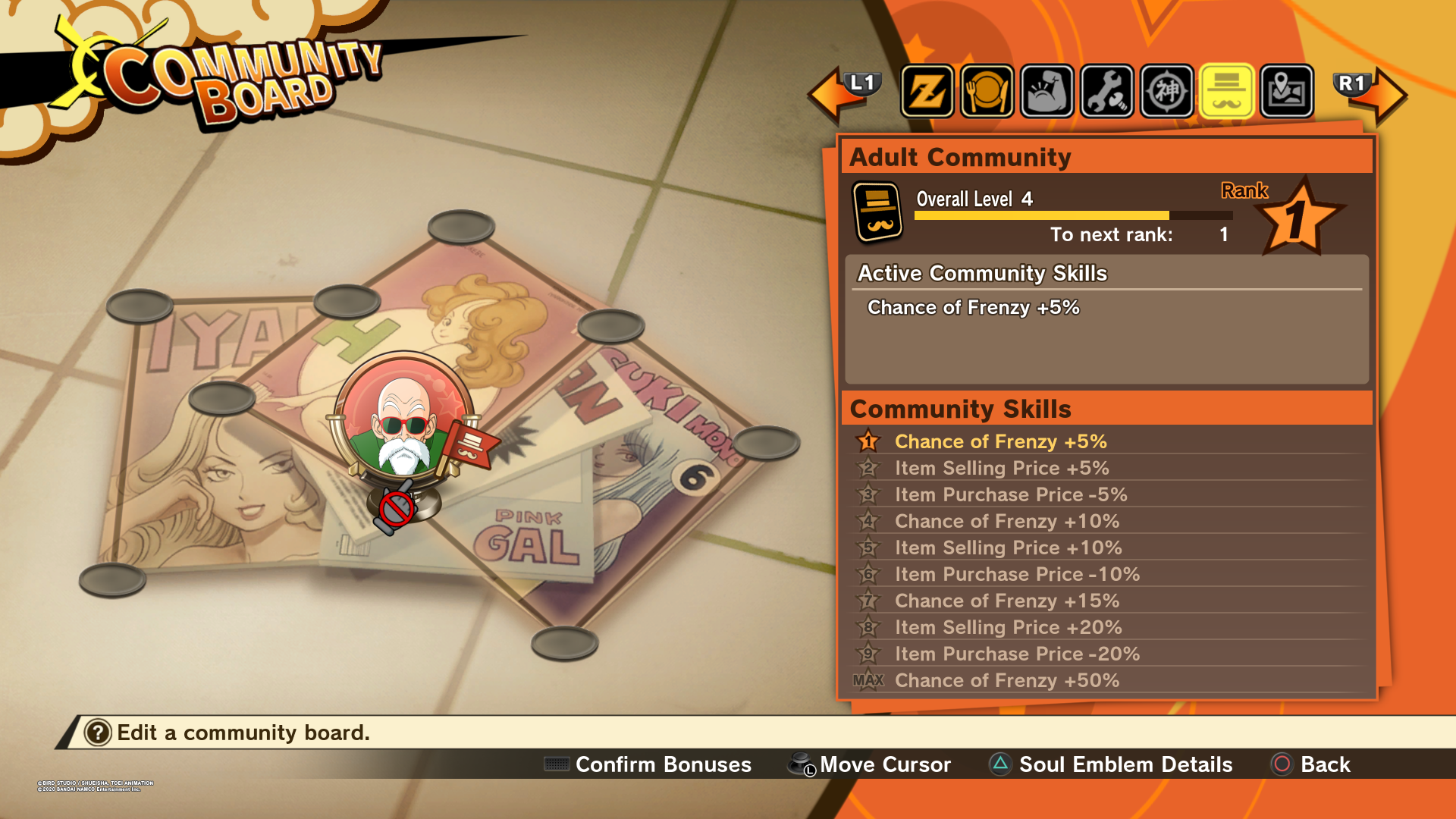
-
Dragon Ball Z Kakarot Review #11

-
Dragon Ball Z Kakarot Review #12
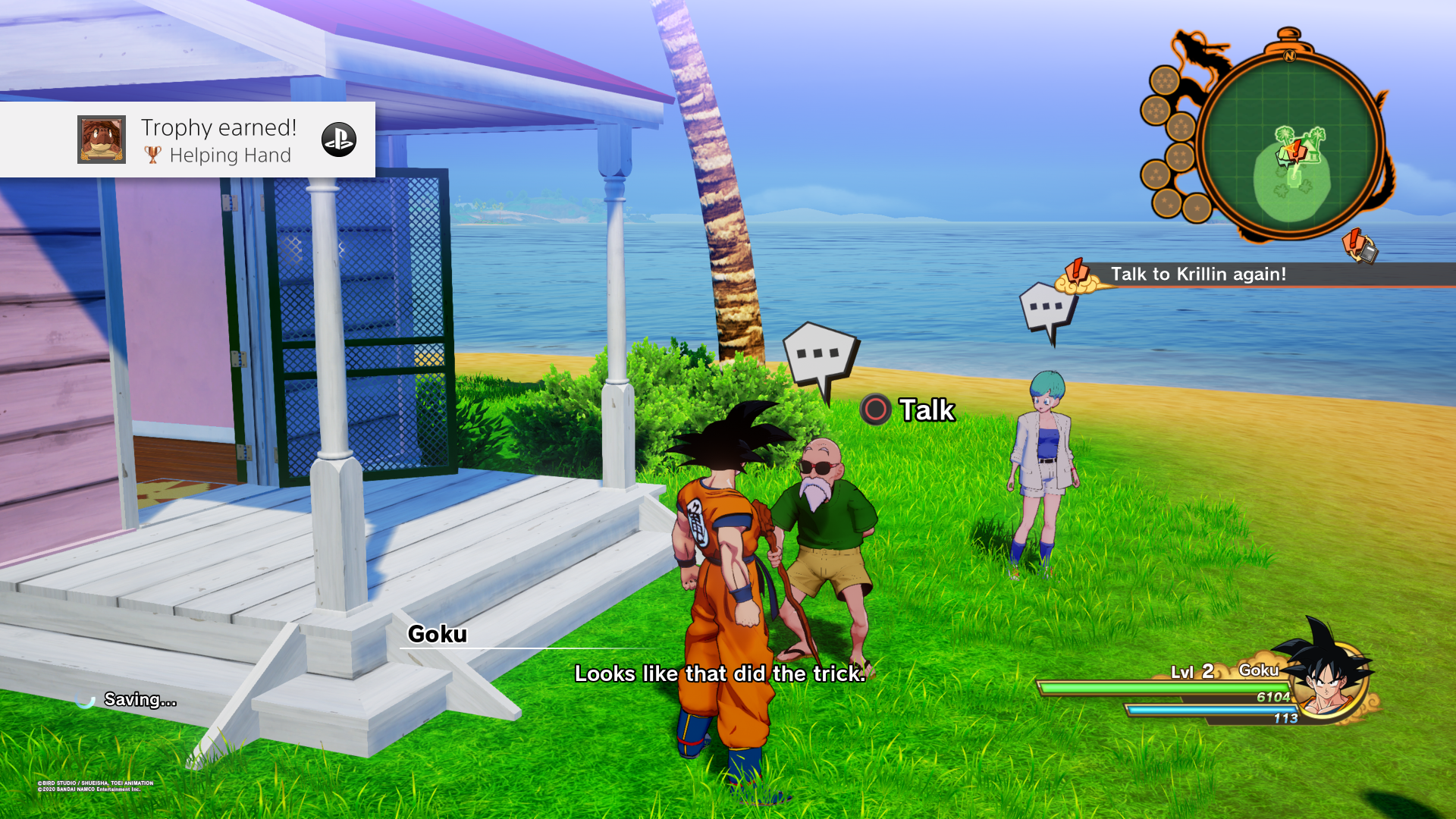
-
Dragon Ball Z Kakarot Review #13
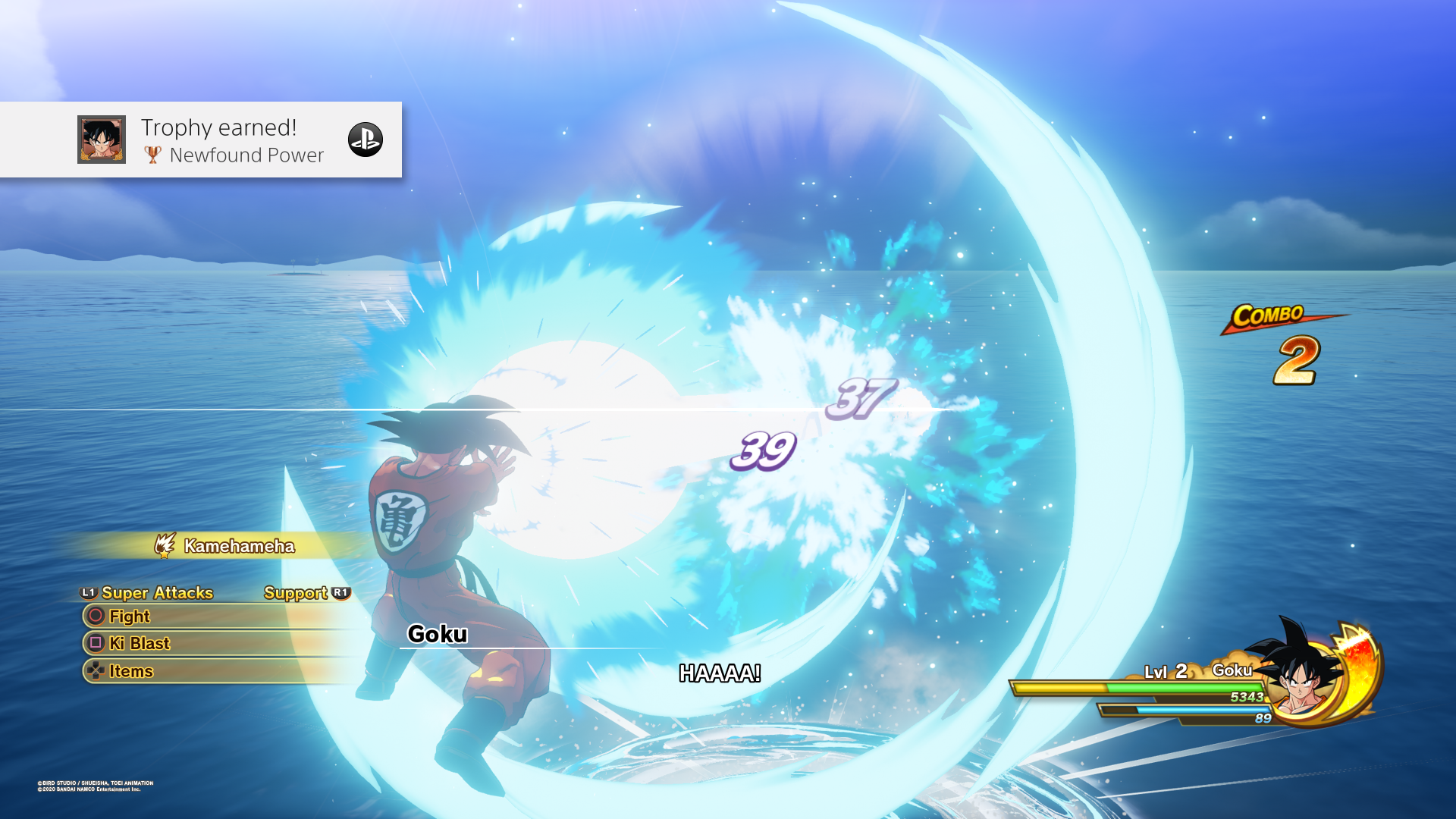
-
Dragon Ball Z Kakarot Review #14
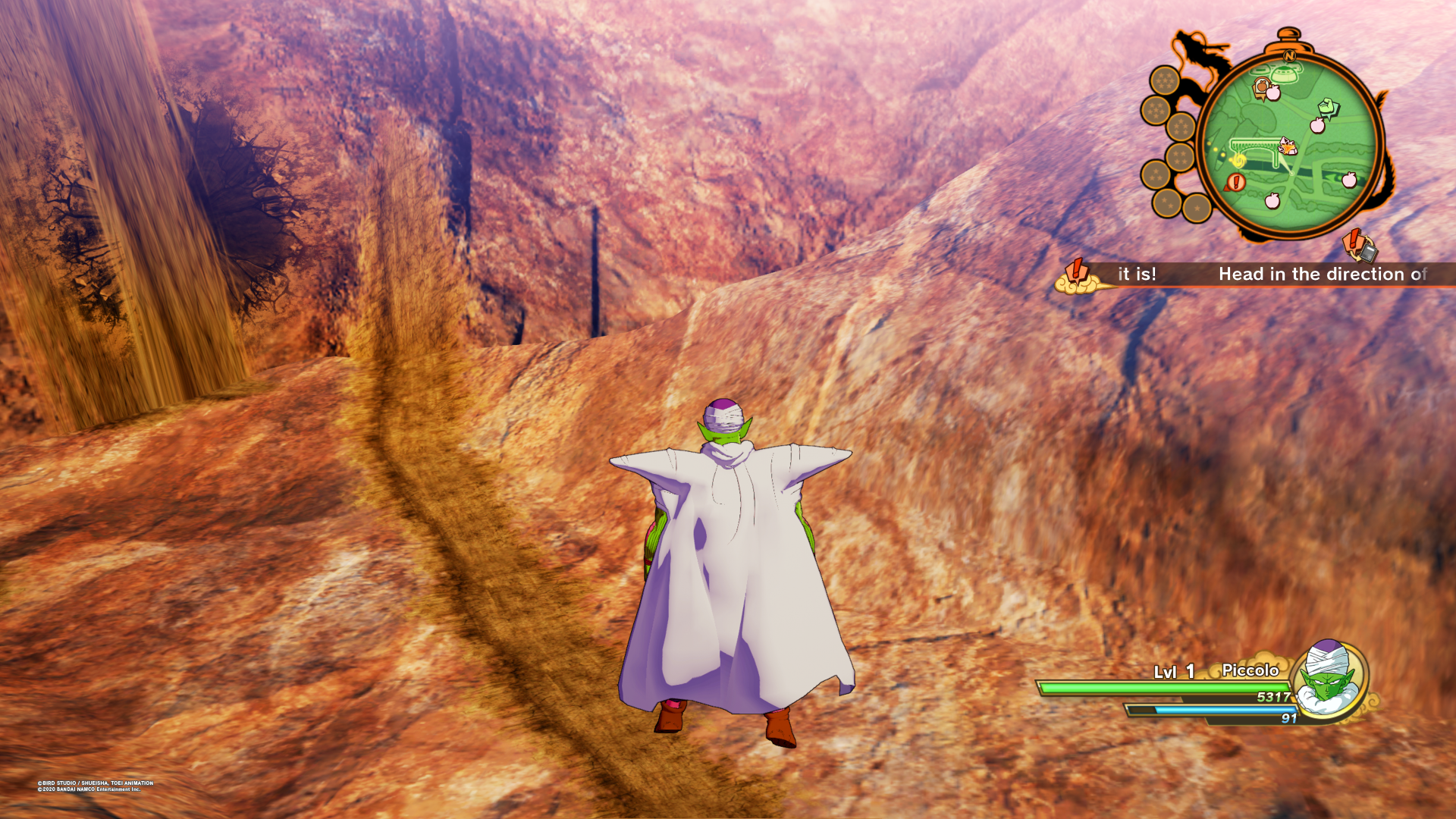
-
Dragon Ball Z Kakarot Review #15
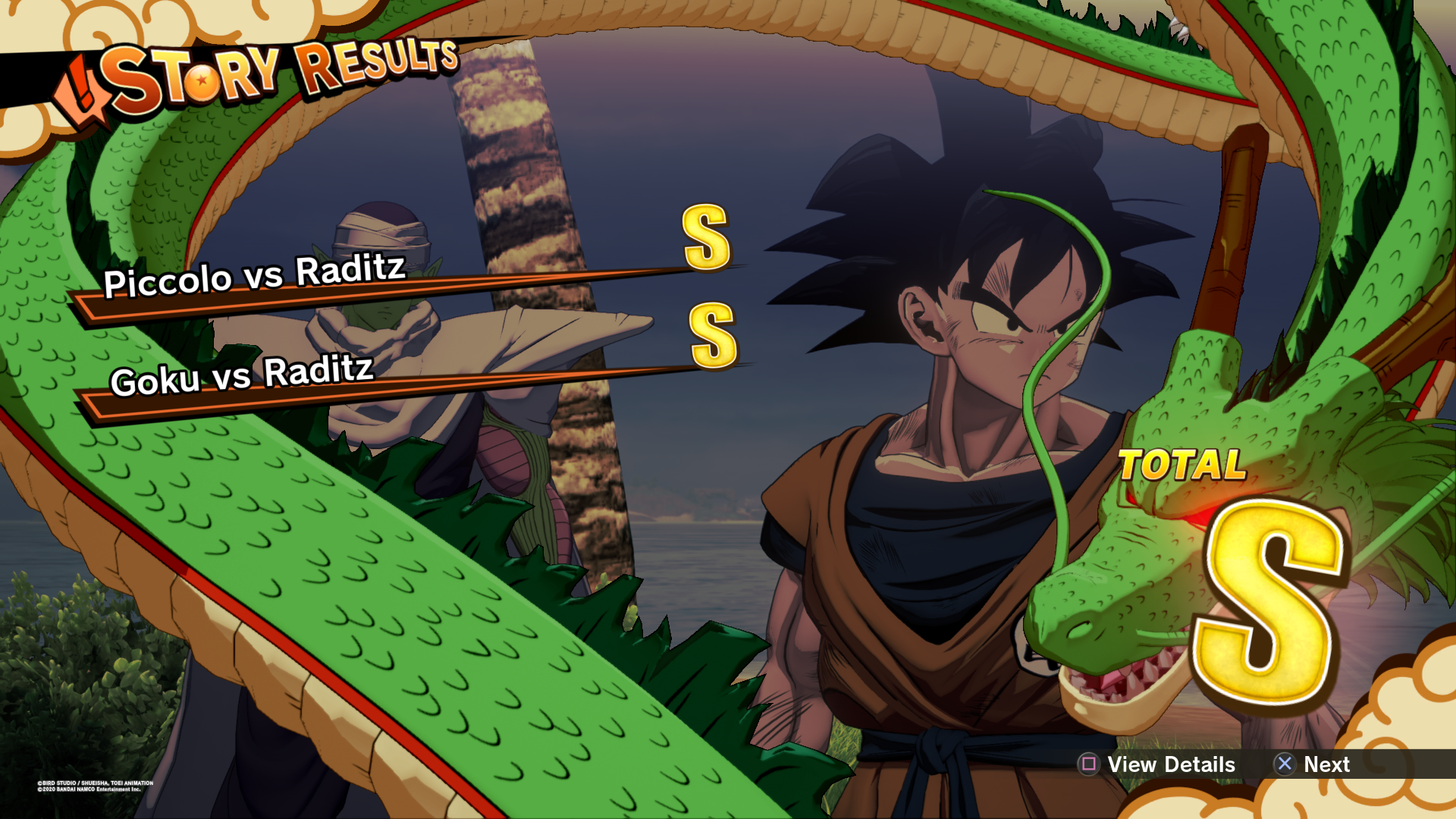
-
Dragon Ball Z Kakarot Review #16
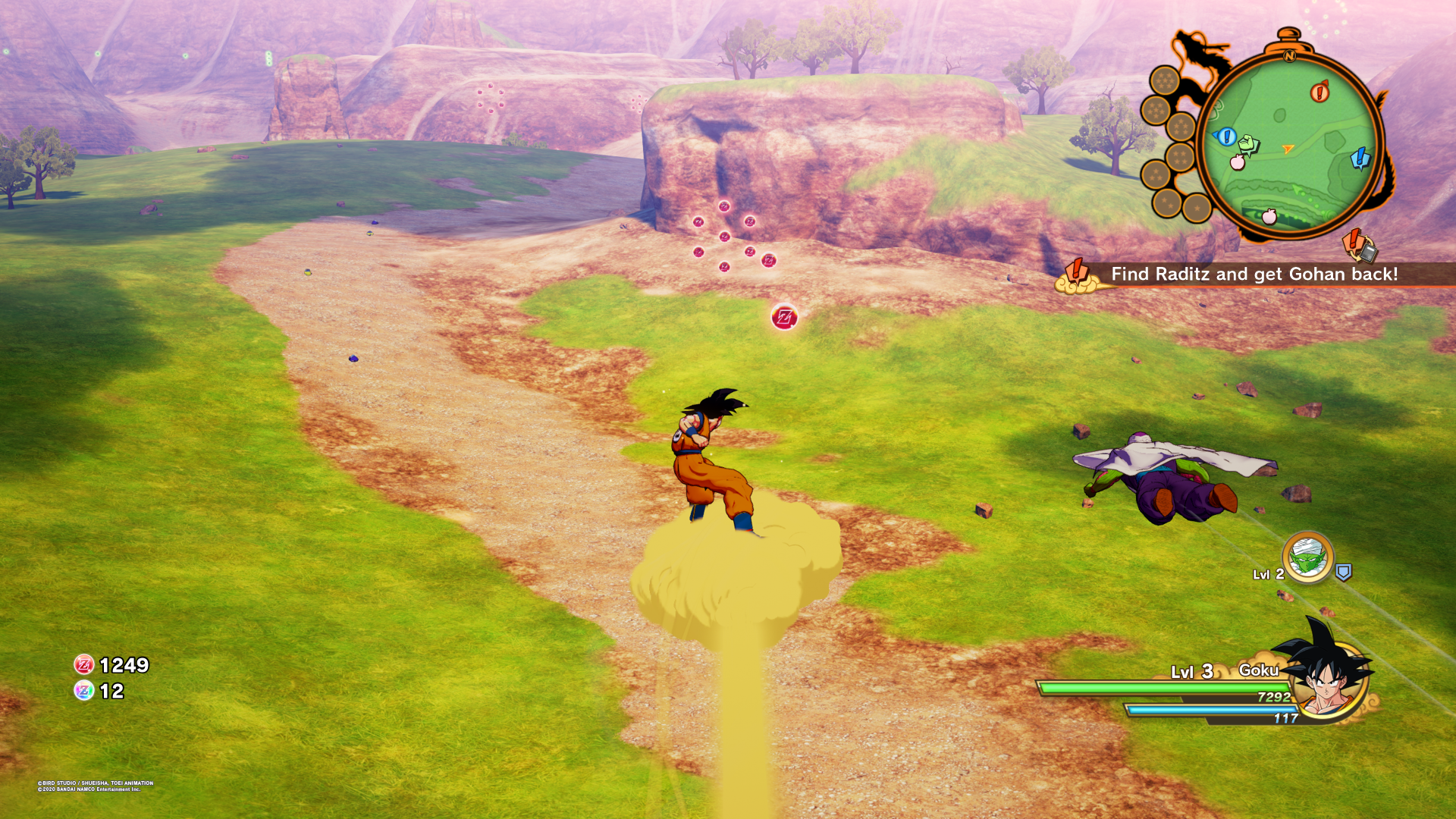
-
Dragon Ball Z Kakarot Review #17
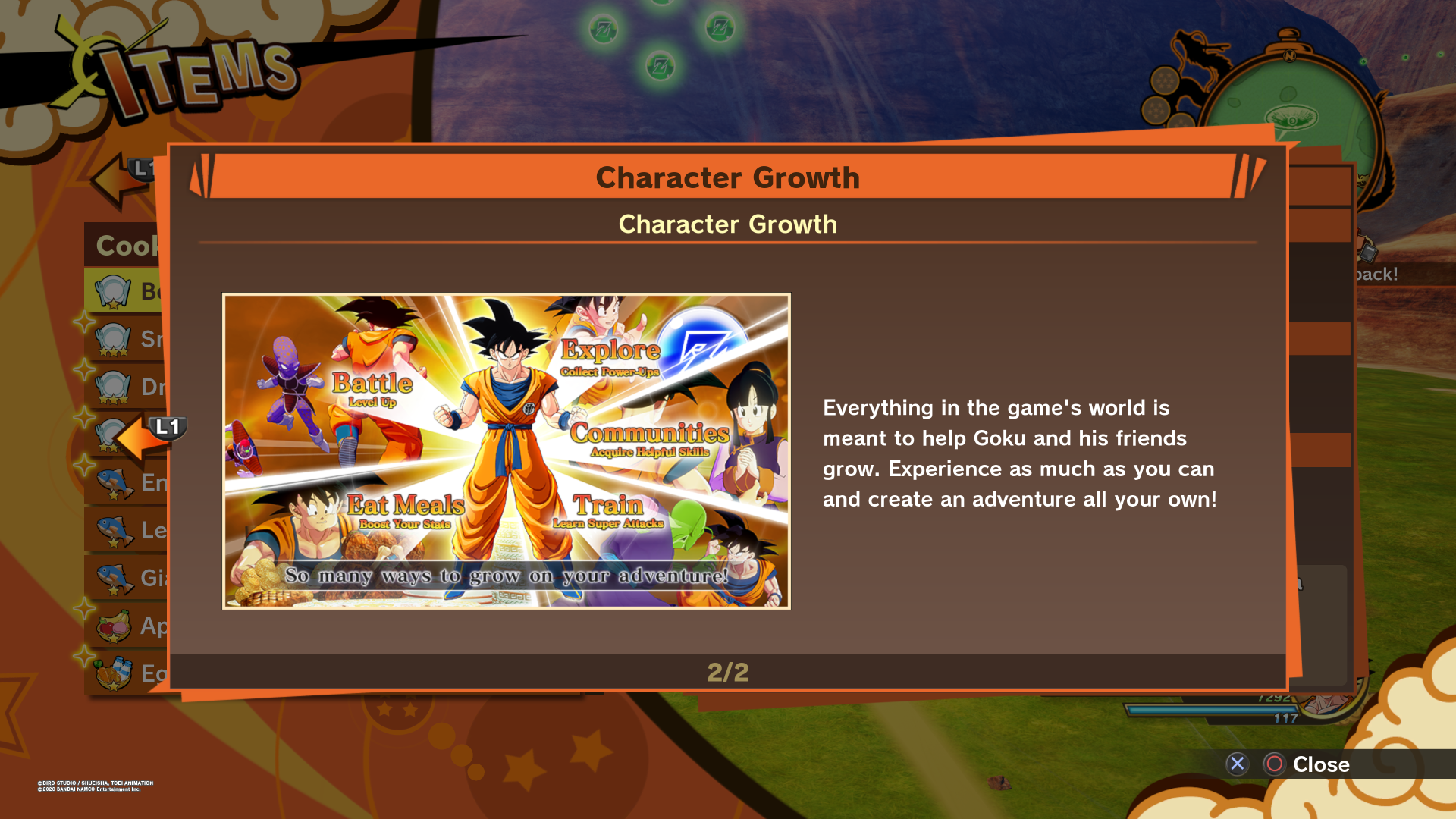
-
Dragon Ball Z Kakarot Review #18
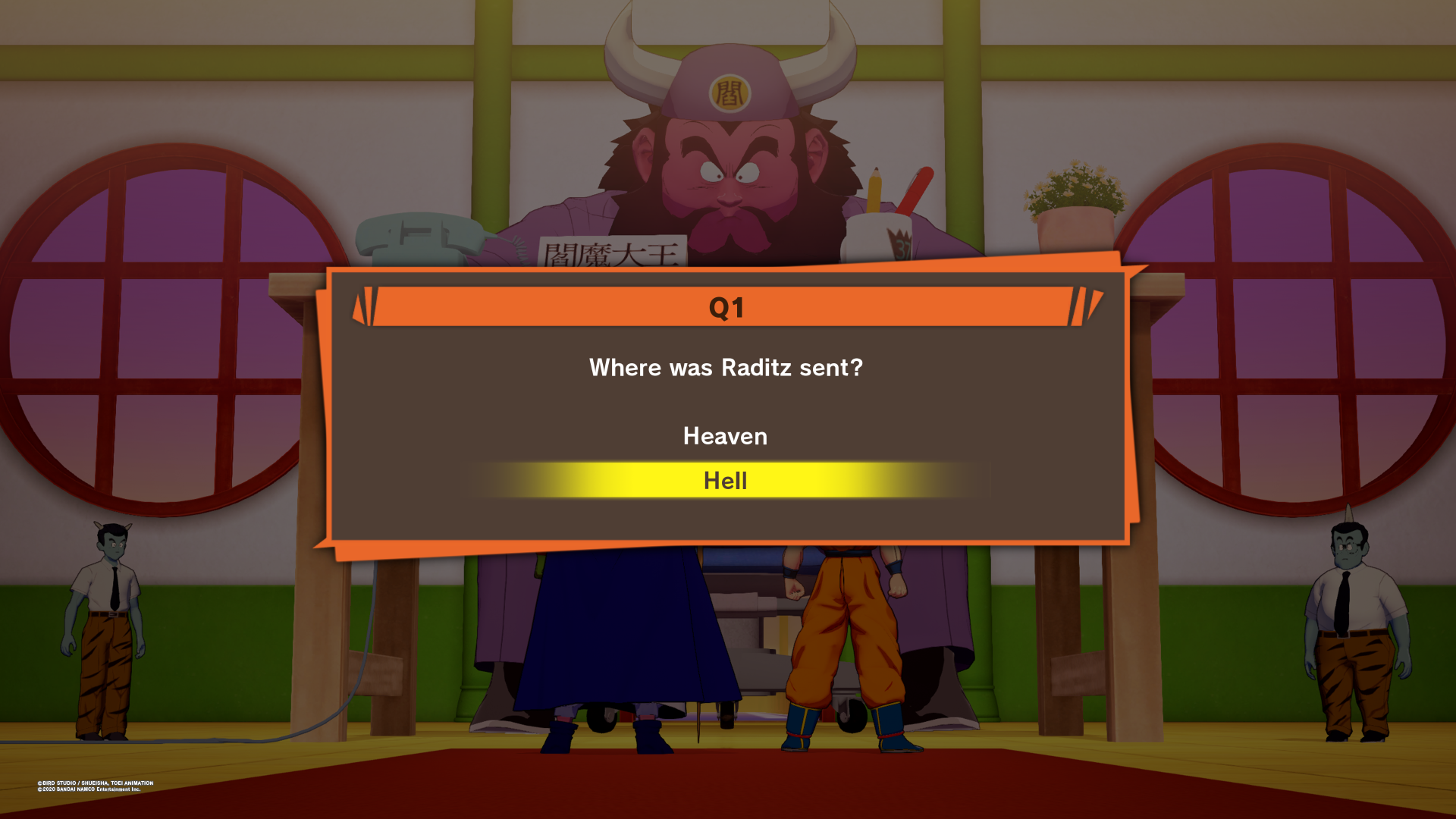
-
Dragon Ball Z Kakarot Review #19
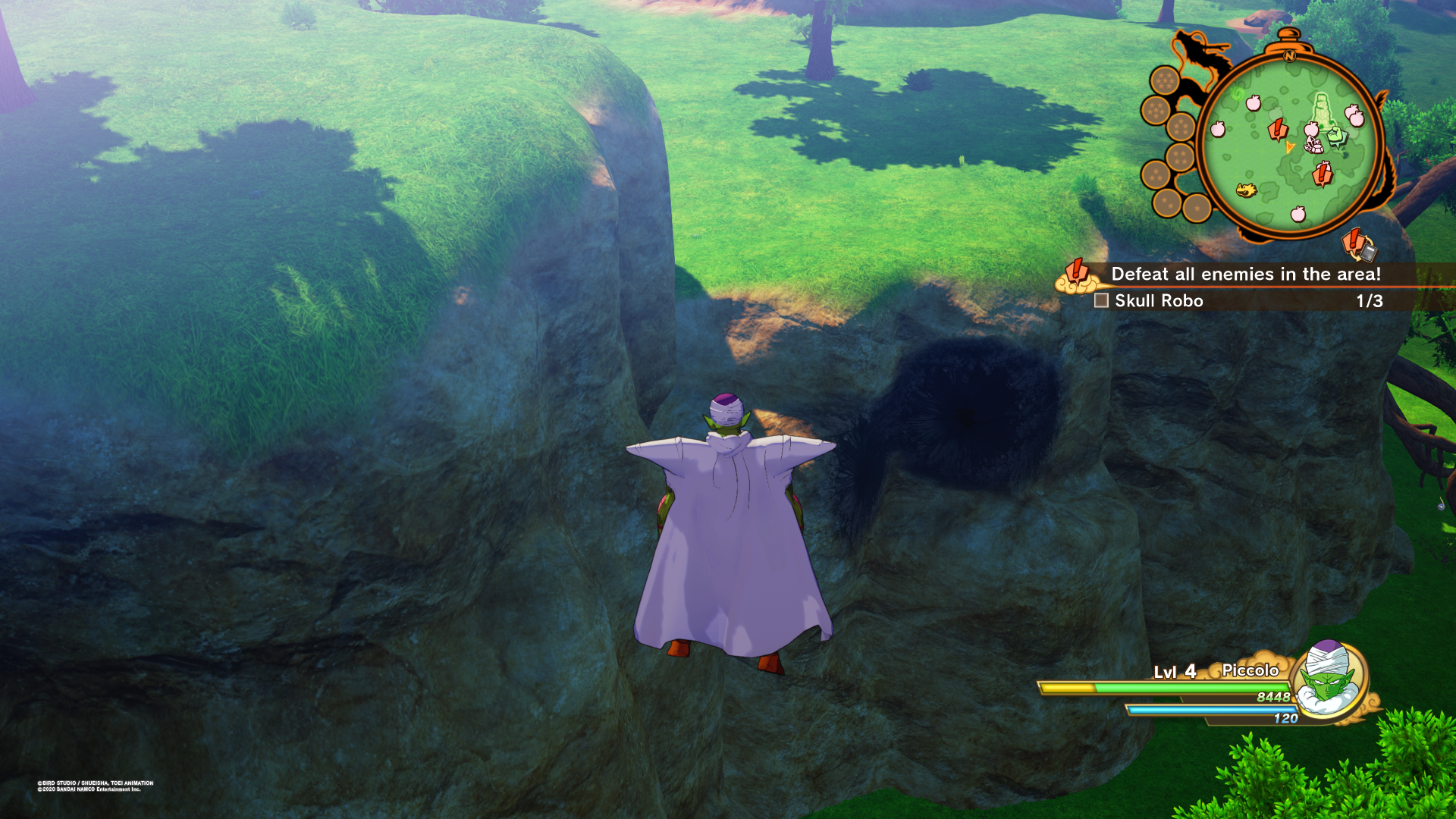
-
Dragon Ball Z Kakarot Review #20

-
Dragon Ball Z Kakarot Review #21

-
Dragon Ball Z Kakarot Review #22
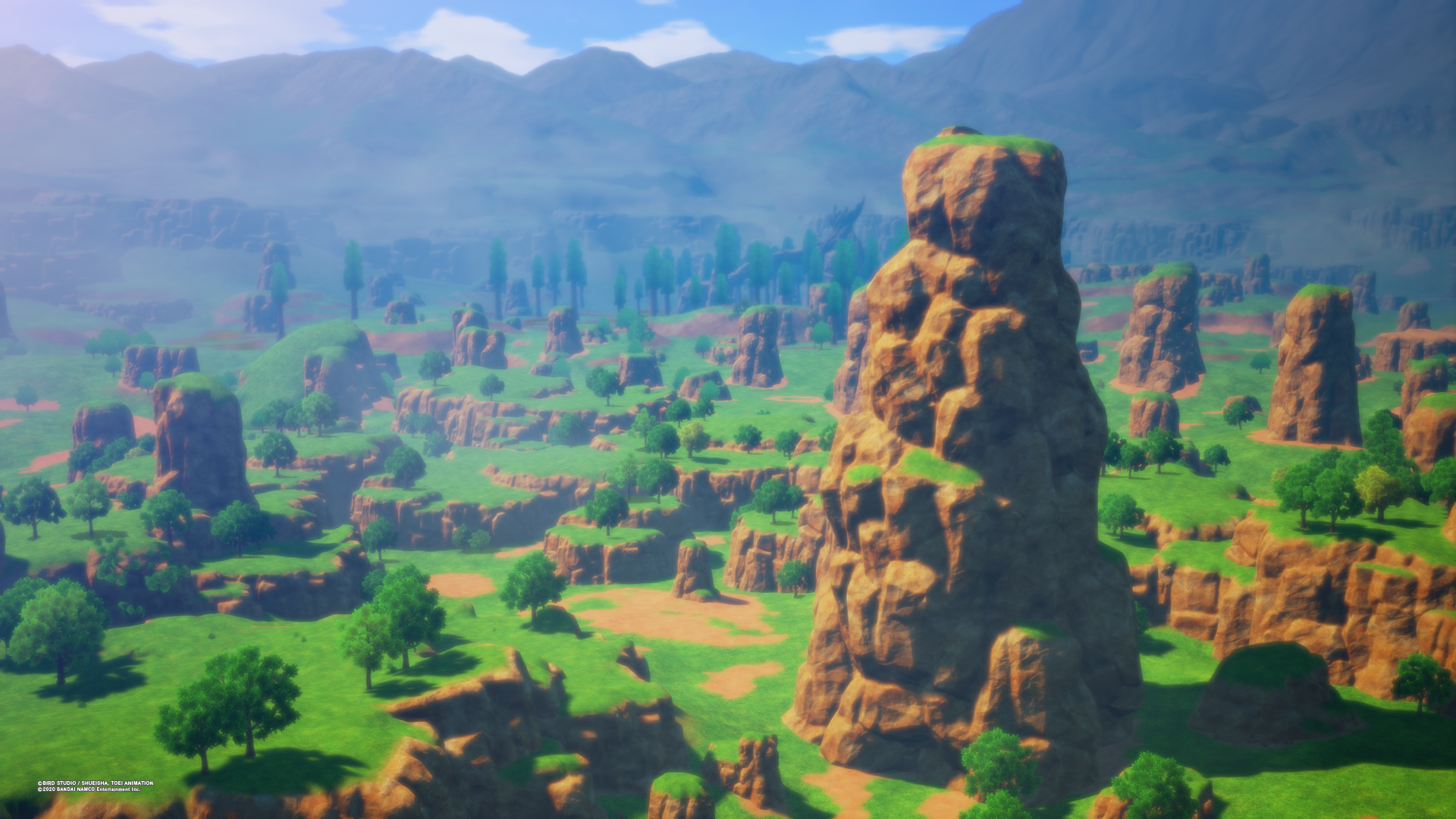
-
Dragon Ball Z Kakarot Review #23
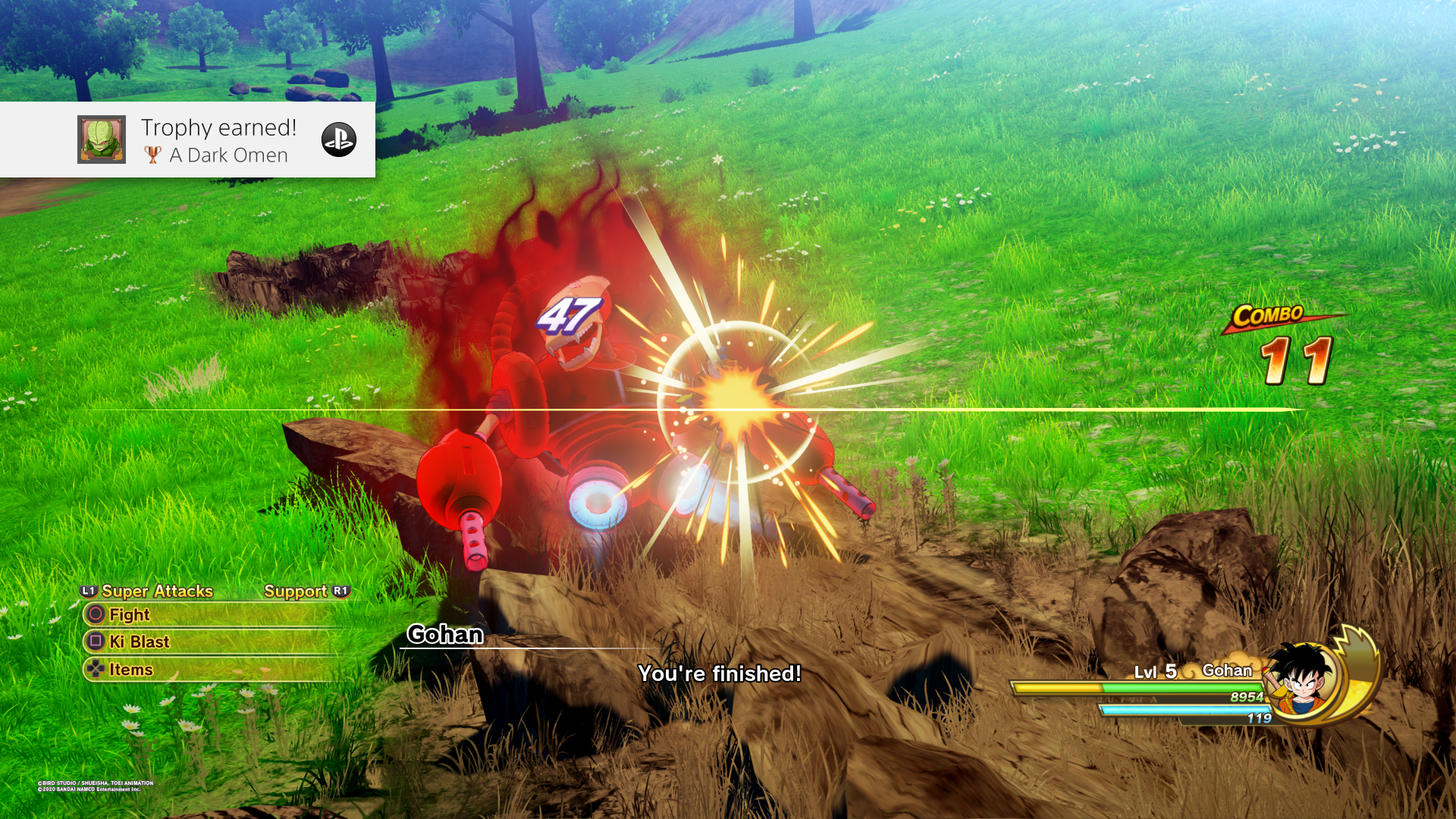
-
Dragon Ball Z Kakarot Review #24
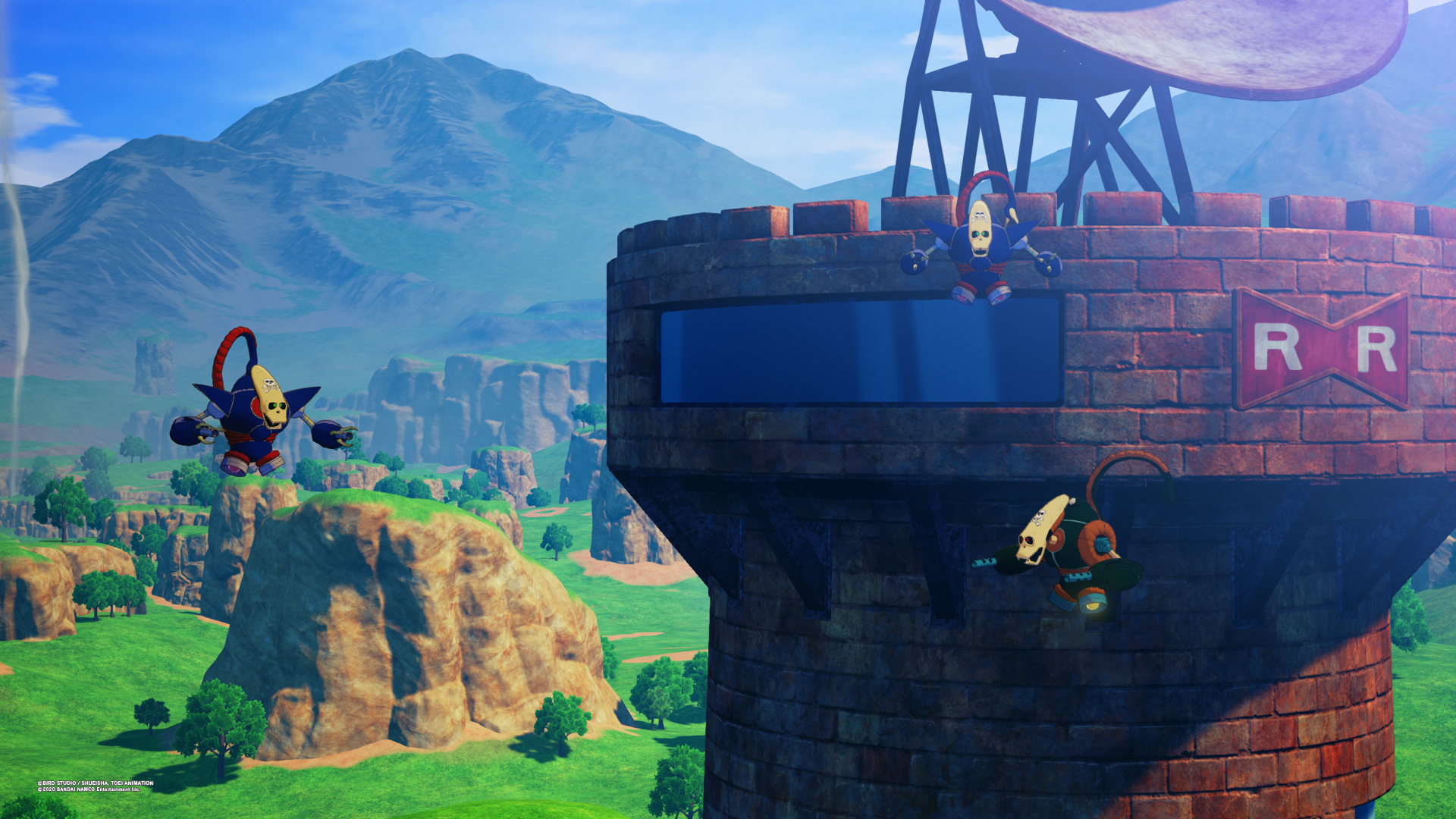
-
Dragon Ball Z Kakarot Review #25
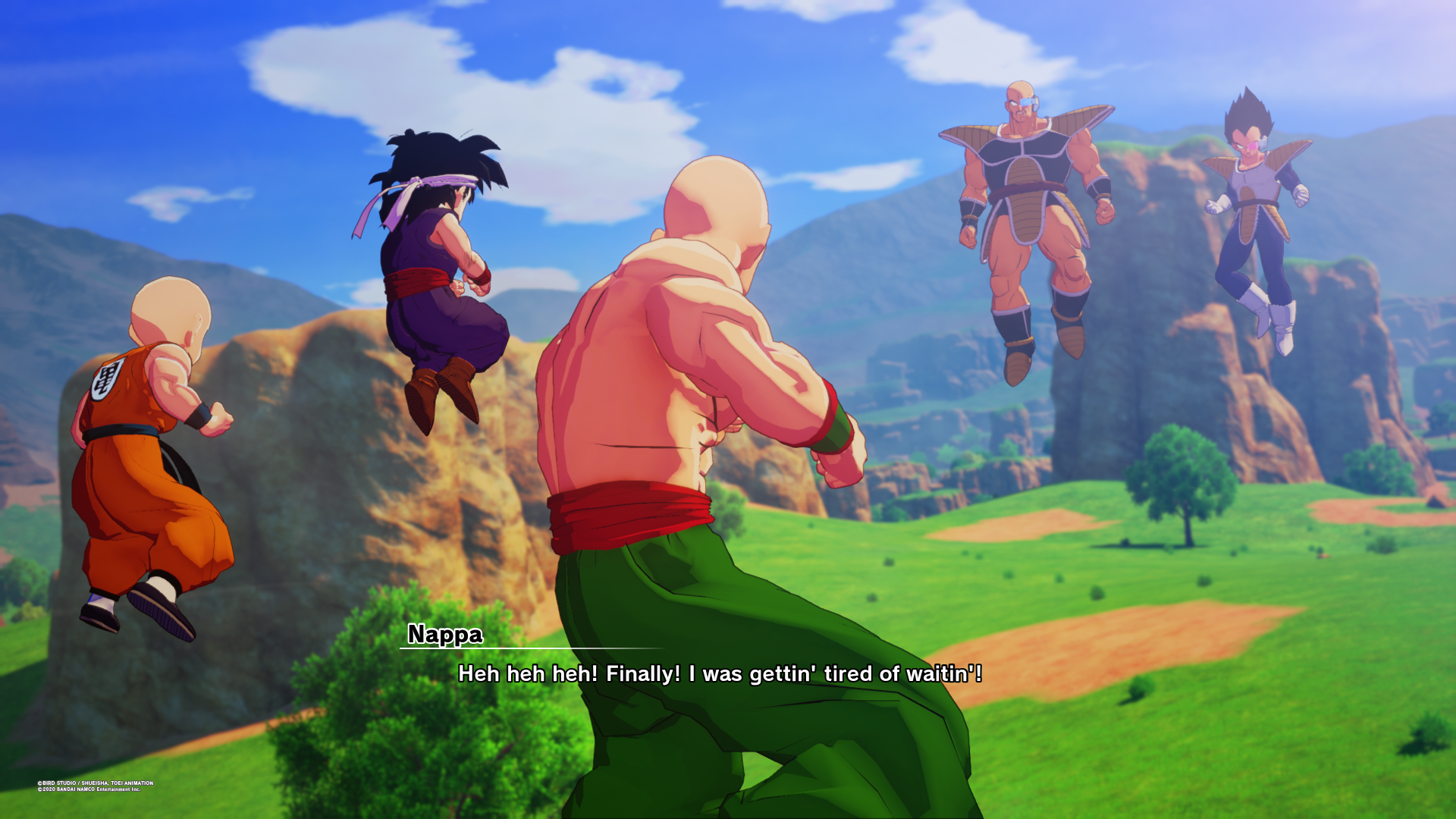
-
Dragon Ball Z Kakarot Review #26
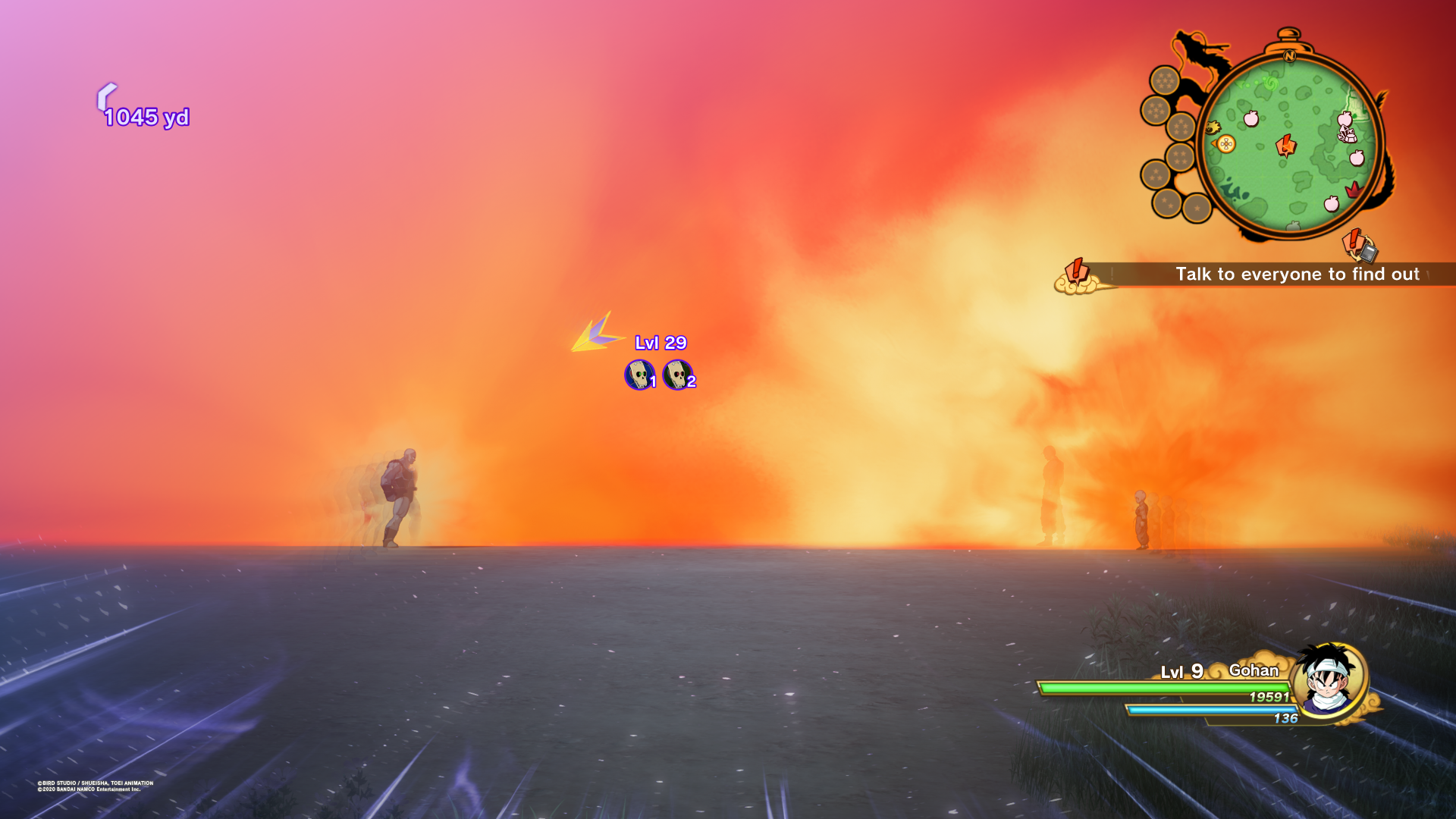
-
Dragon Ball Z Kakarot Review #27
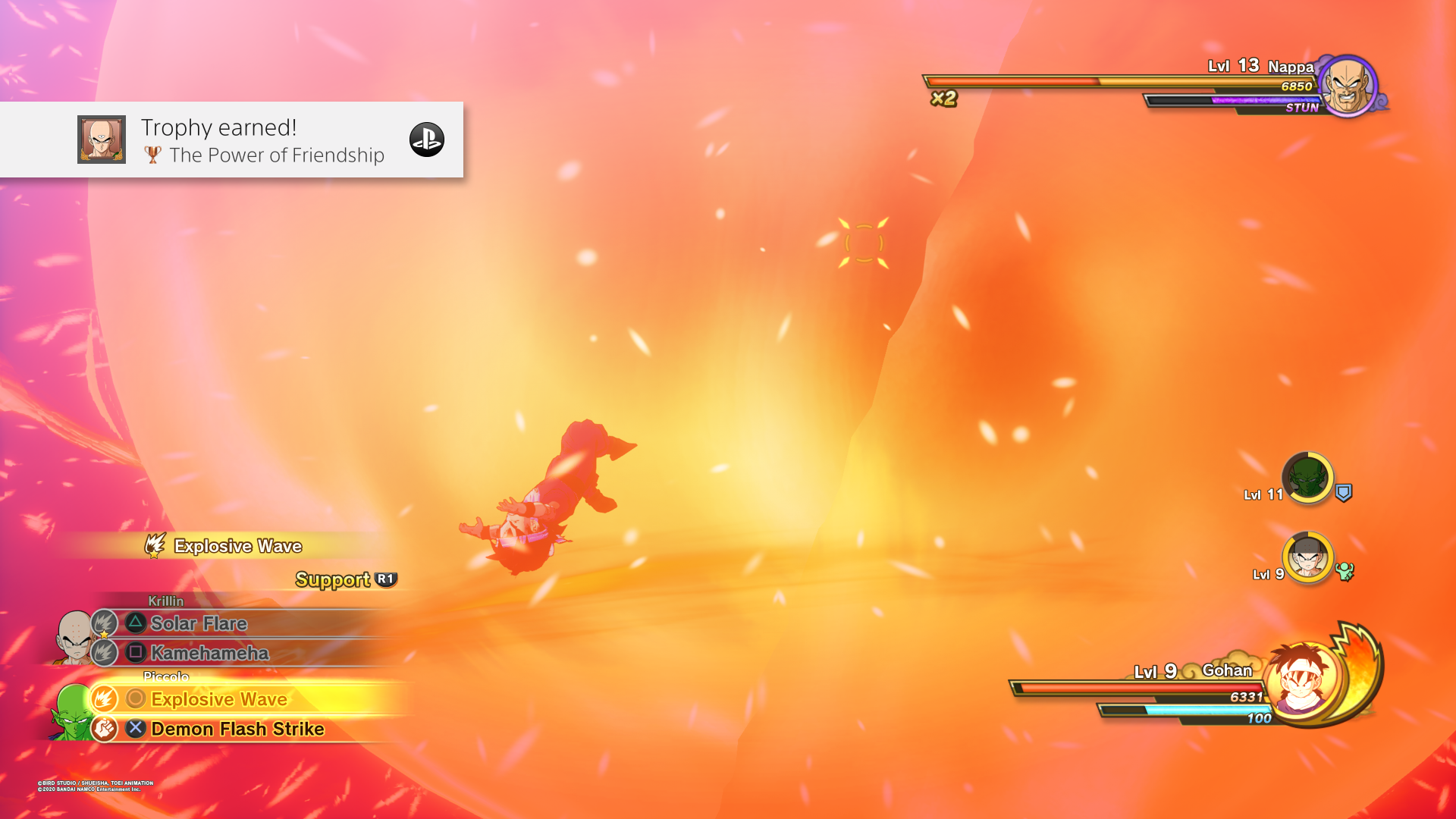
-
Dragon Ball Z Kakarot Review #28
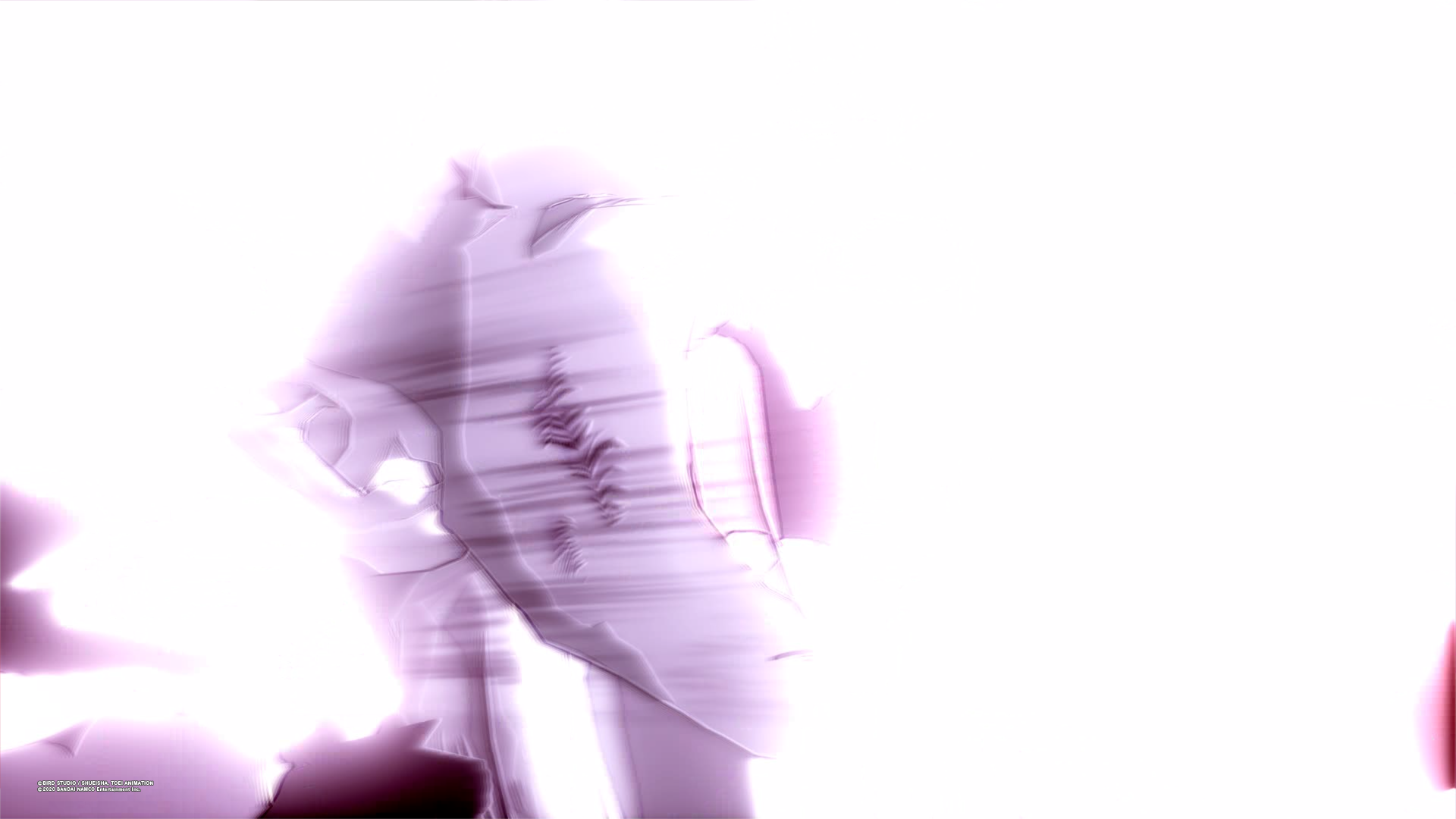
-
Dragon Ball Z Kakarot Review #29
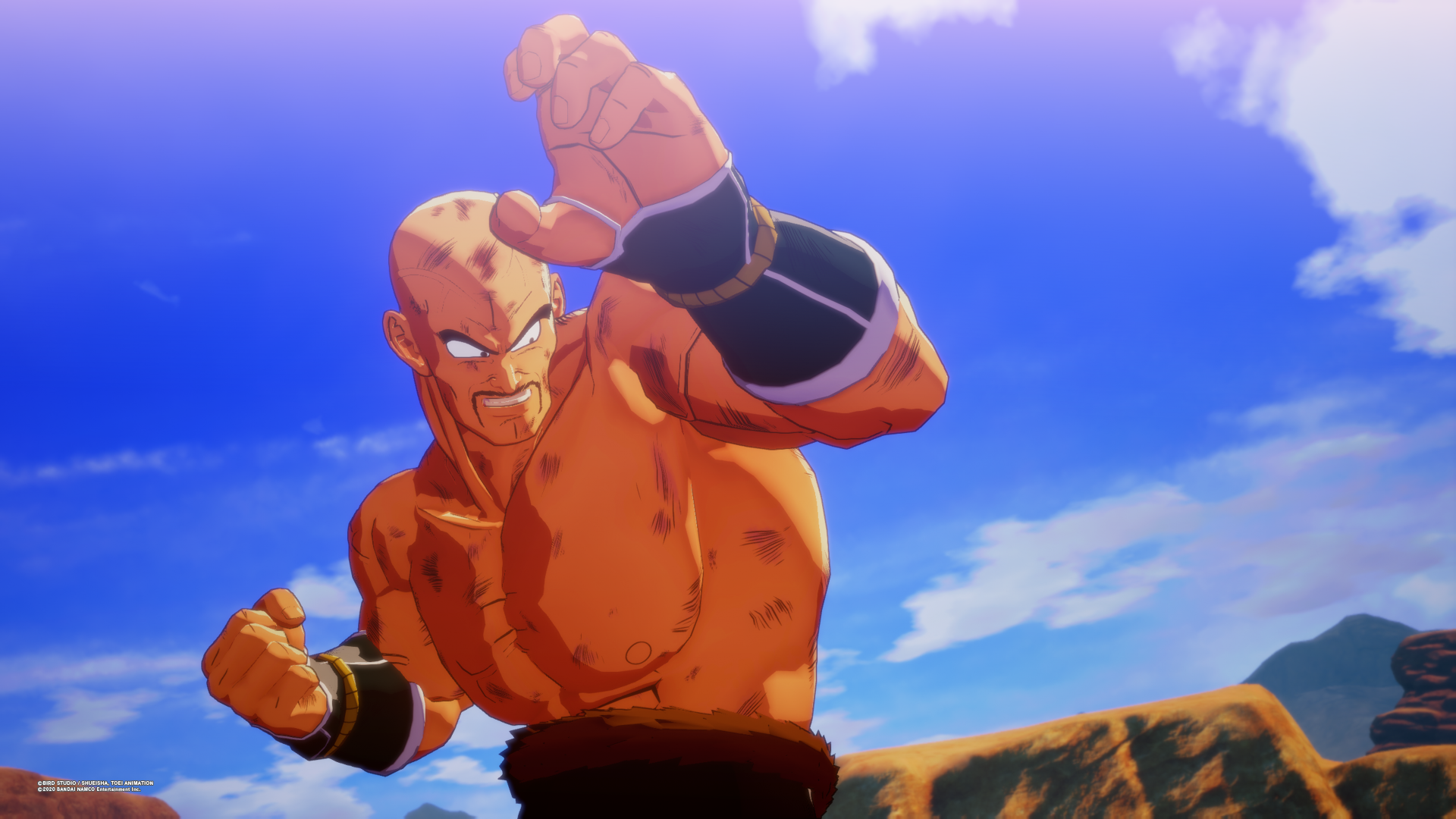
-
Dragon Ball Z Kakarot Review #30
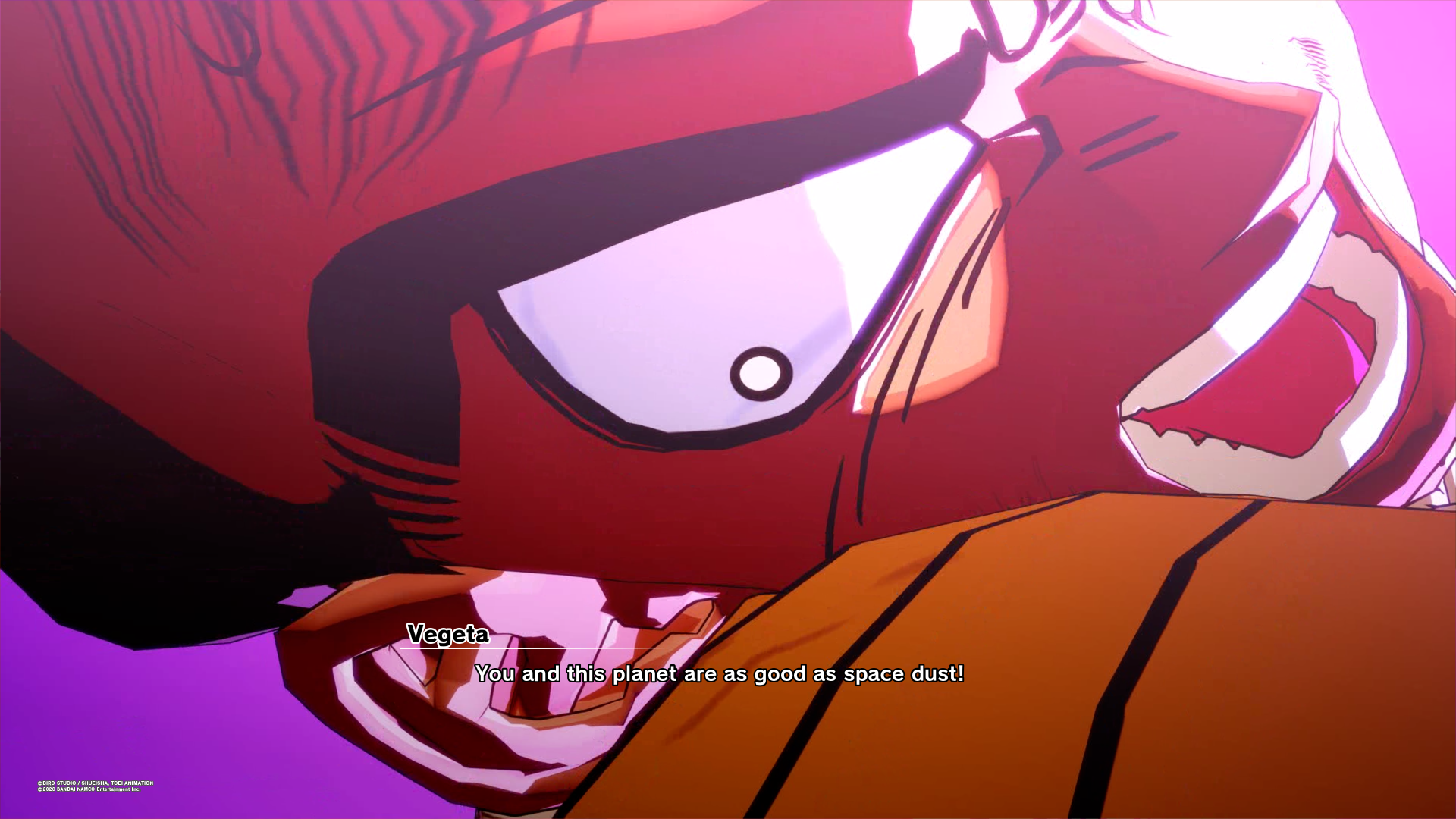
-
Dragon Ball Z Kakarot Review #31
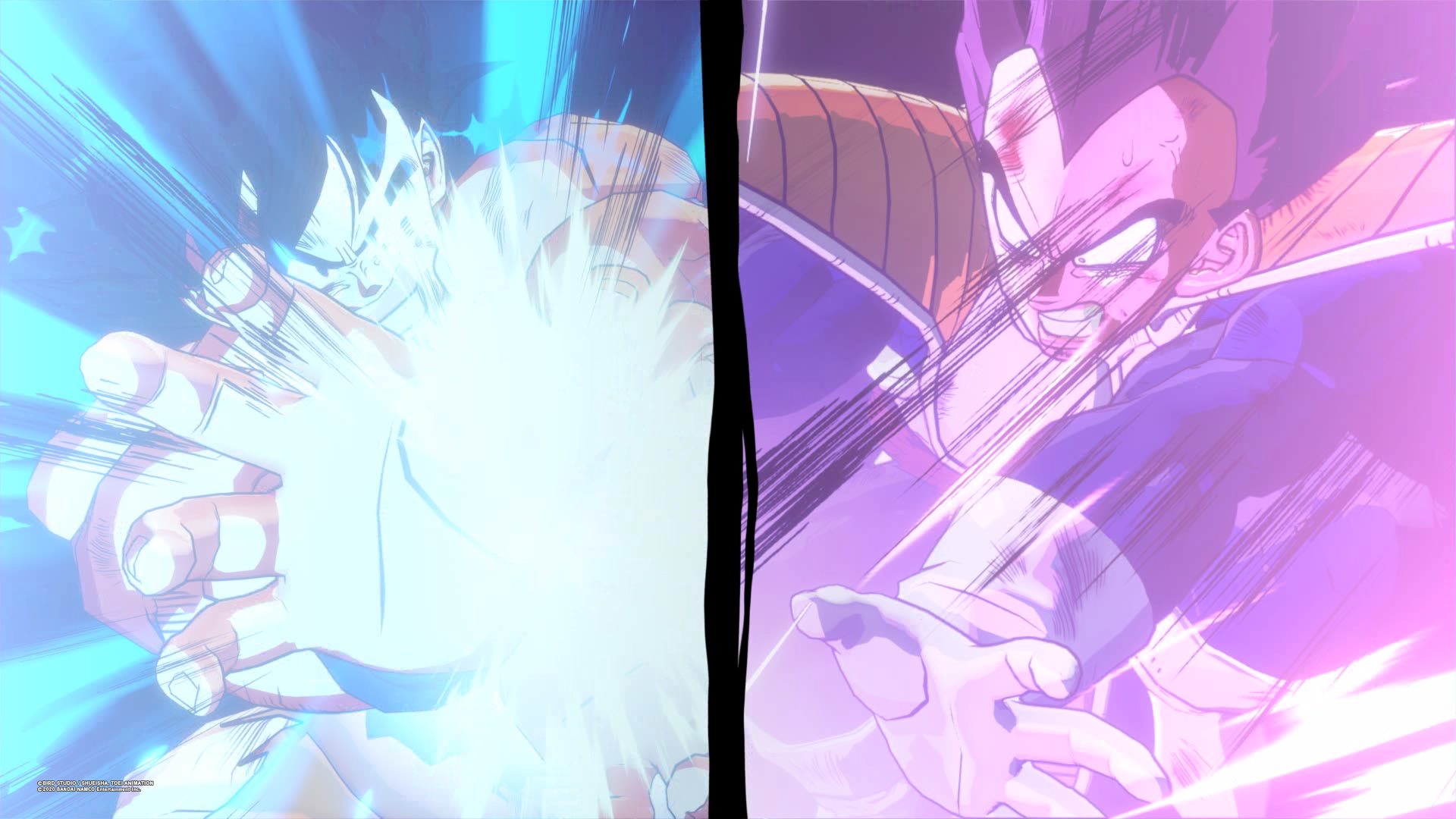
-
Dragon Ball Z Kakarot Review #32
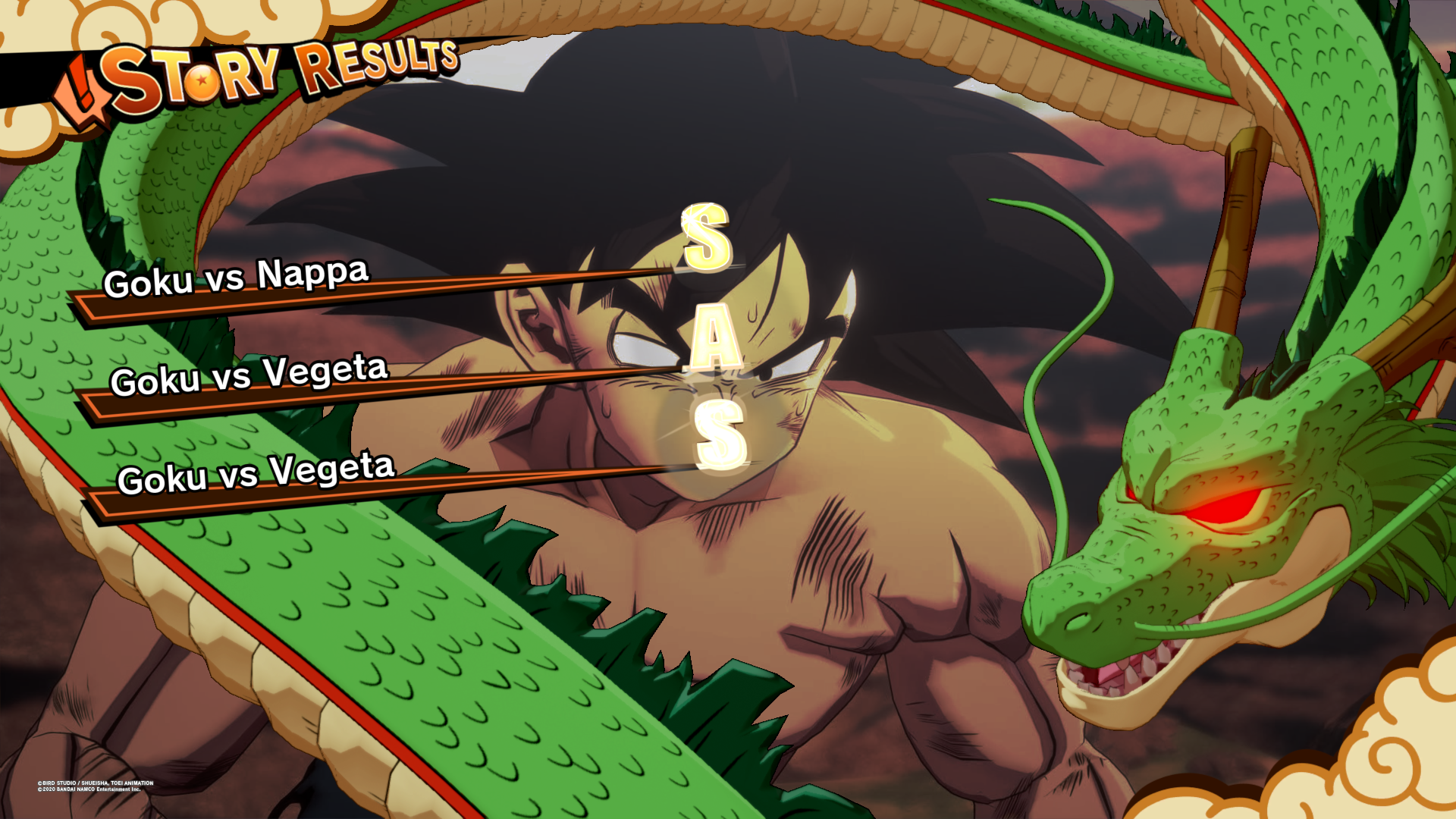
-
Dragon Ball Z Kakarot Review #33

-
Dragon Ball Z Kakarot Review #34
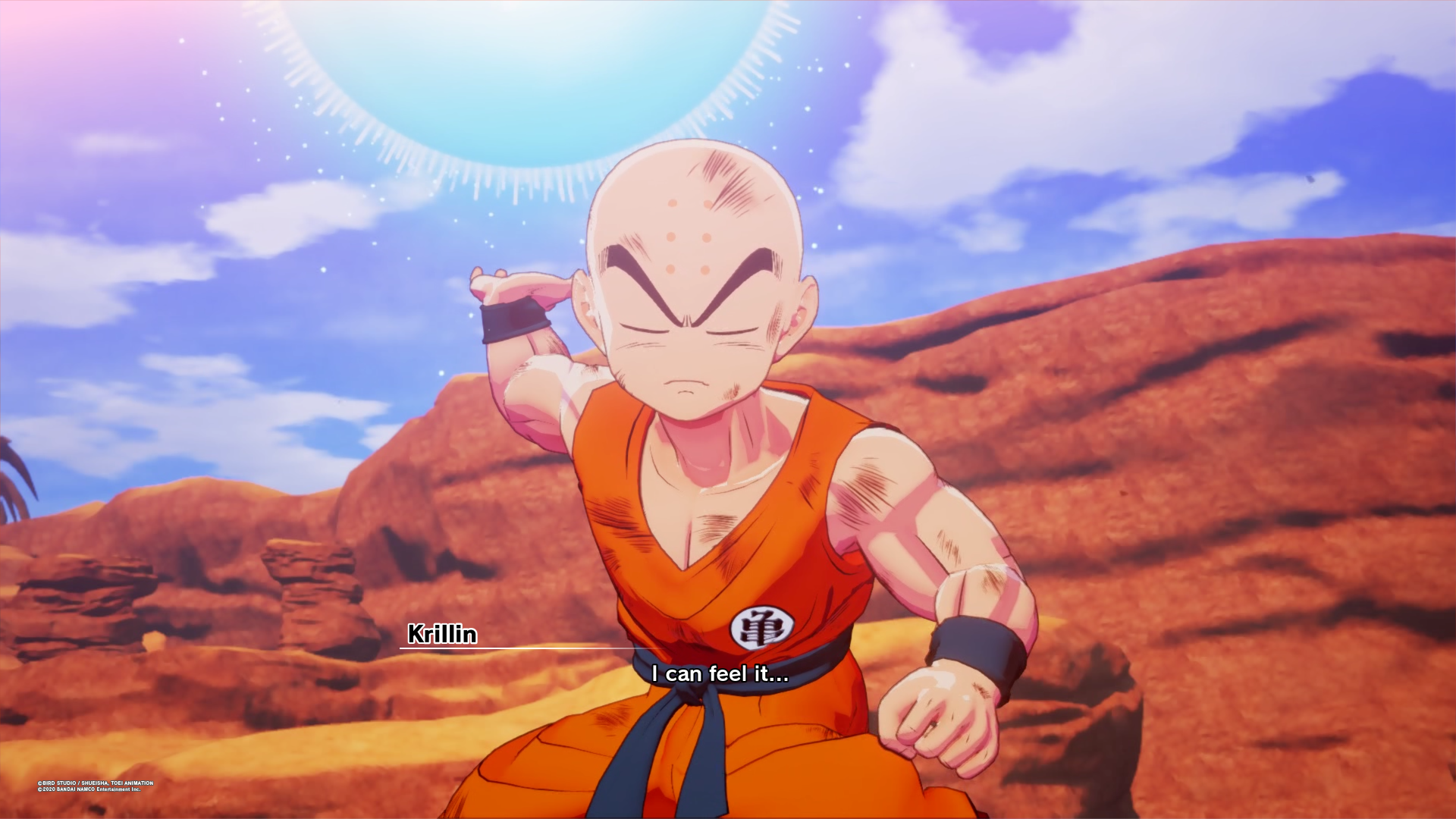
-
Dragon Ball Z Kakarot Review #35
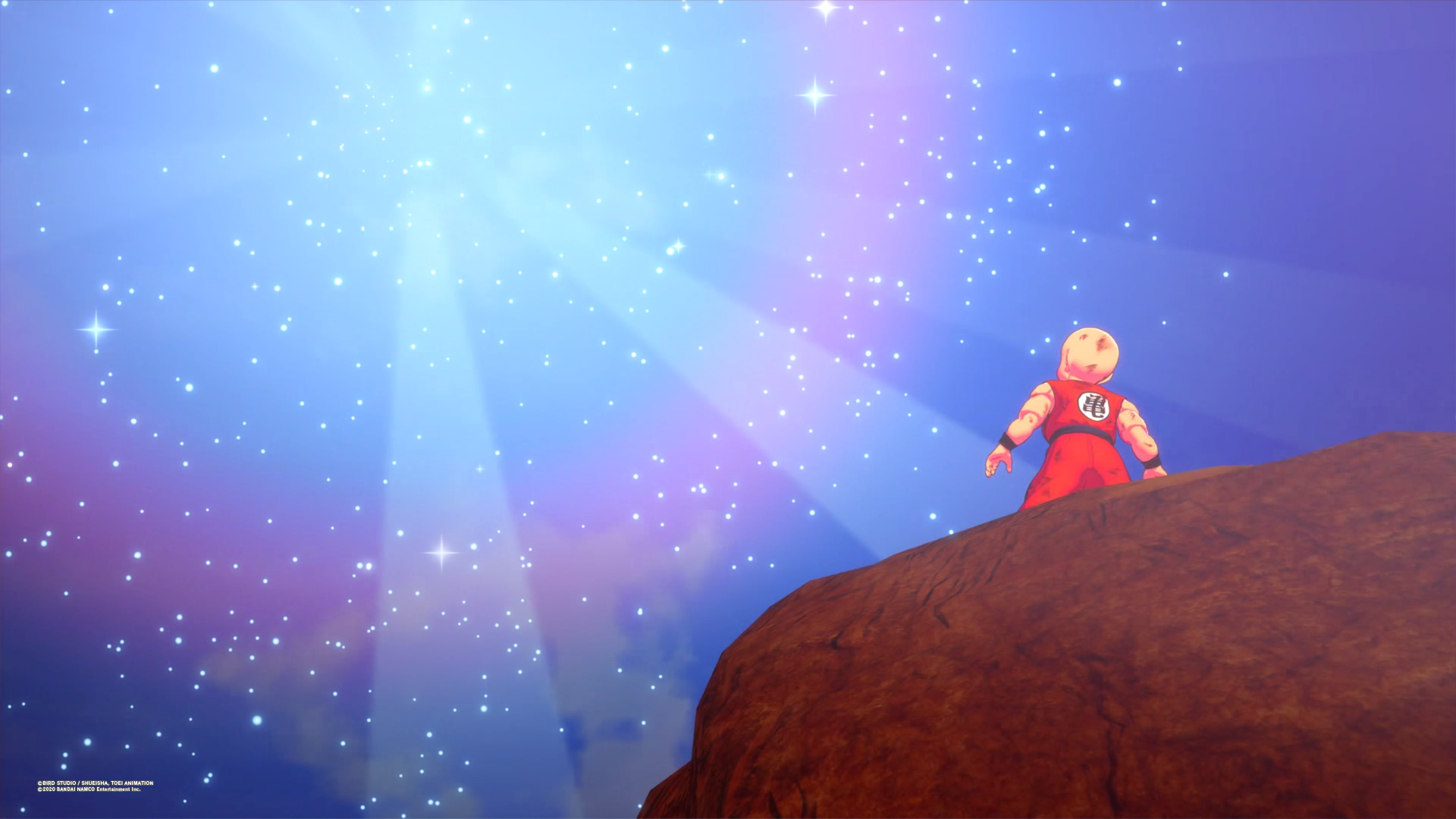
-
Dragon Ball Z Kakarot Review #36
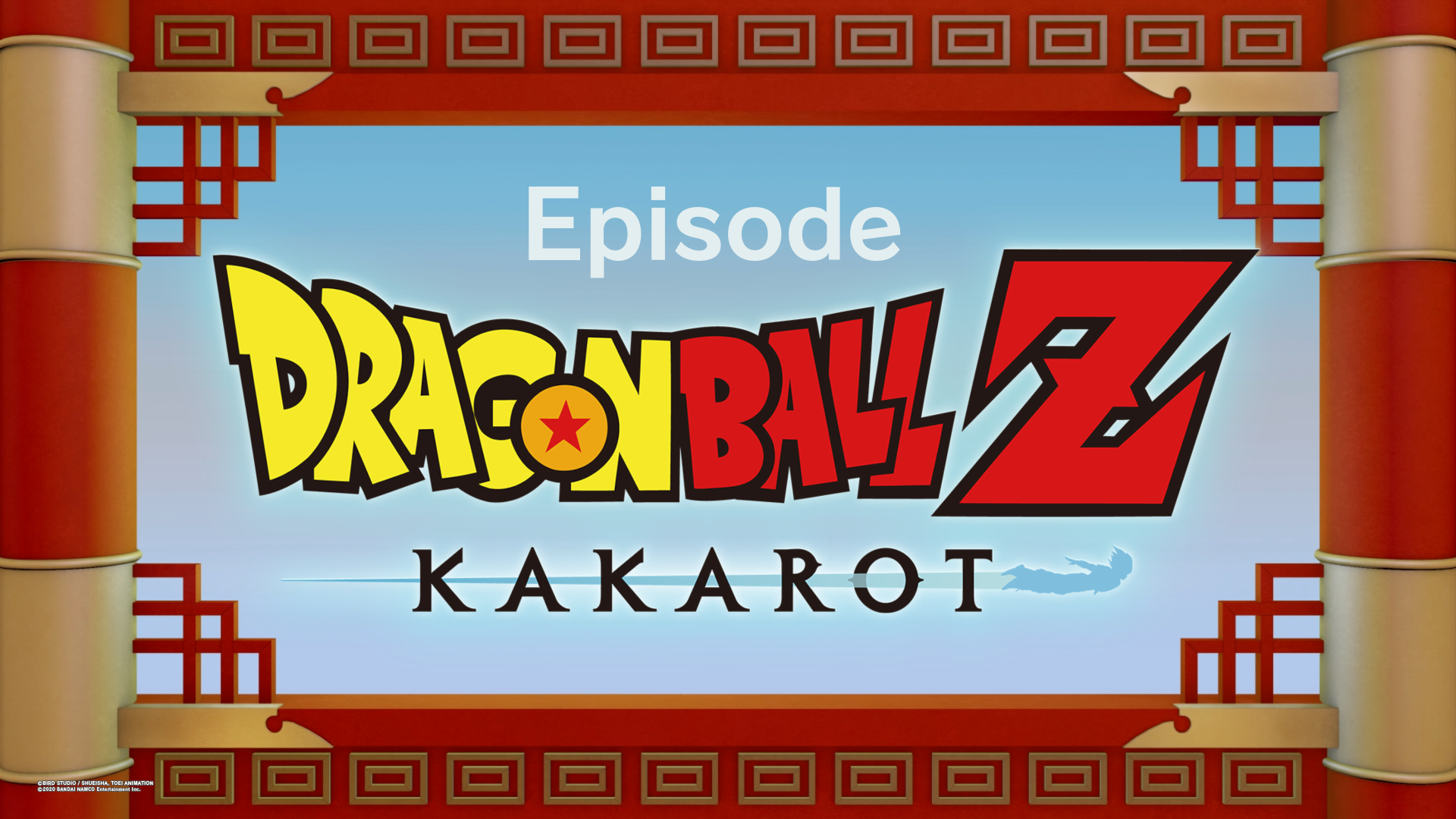
-
Dragon Ball Z Kakarot Review #37
